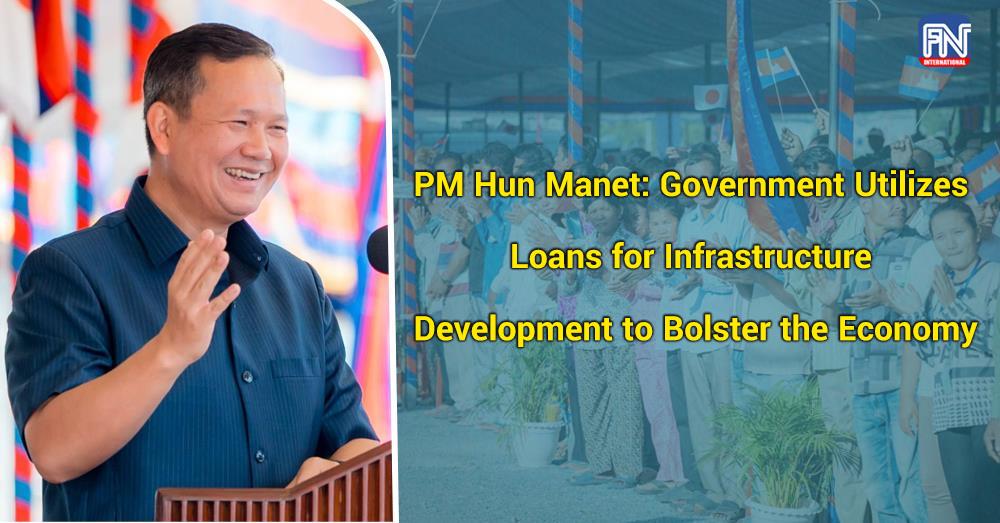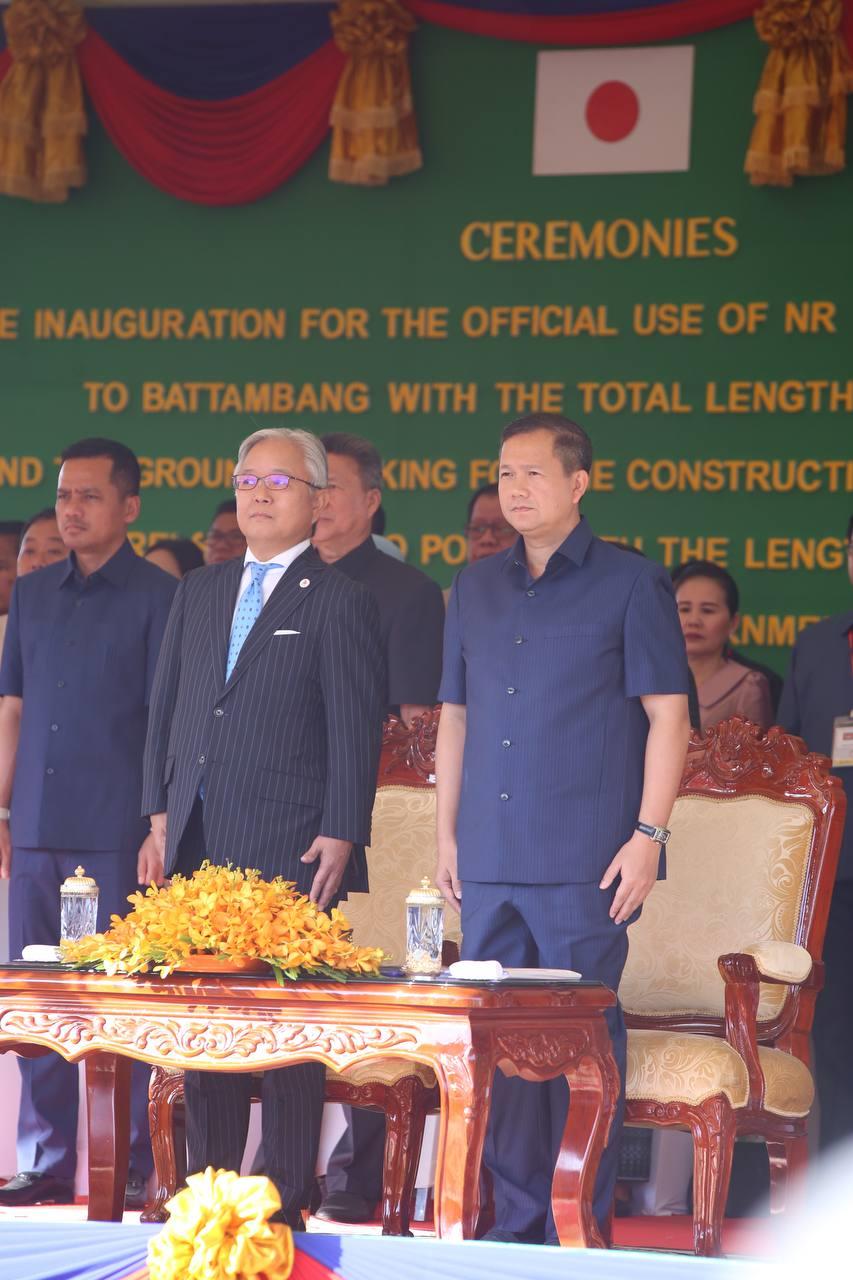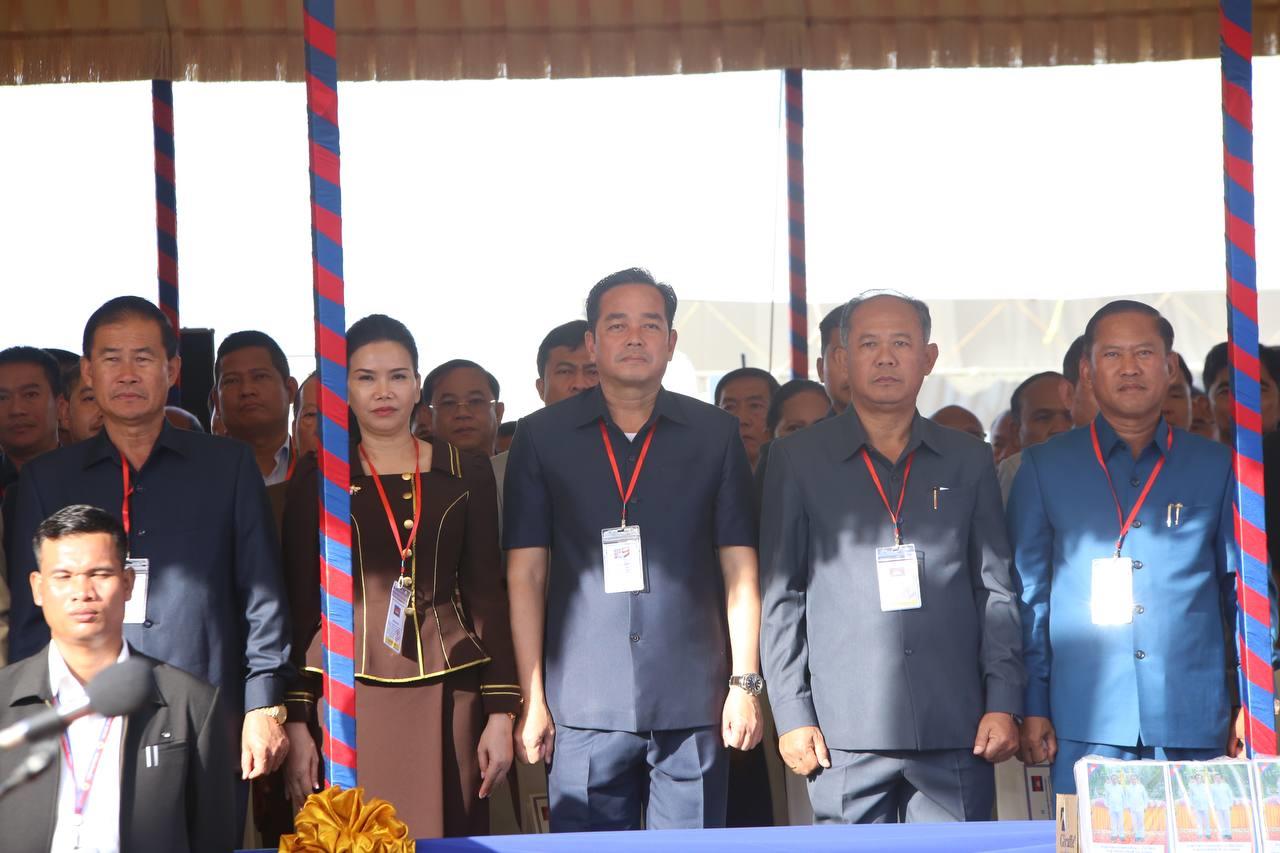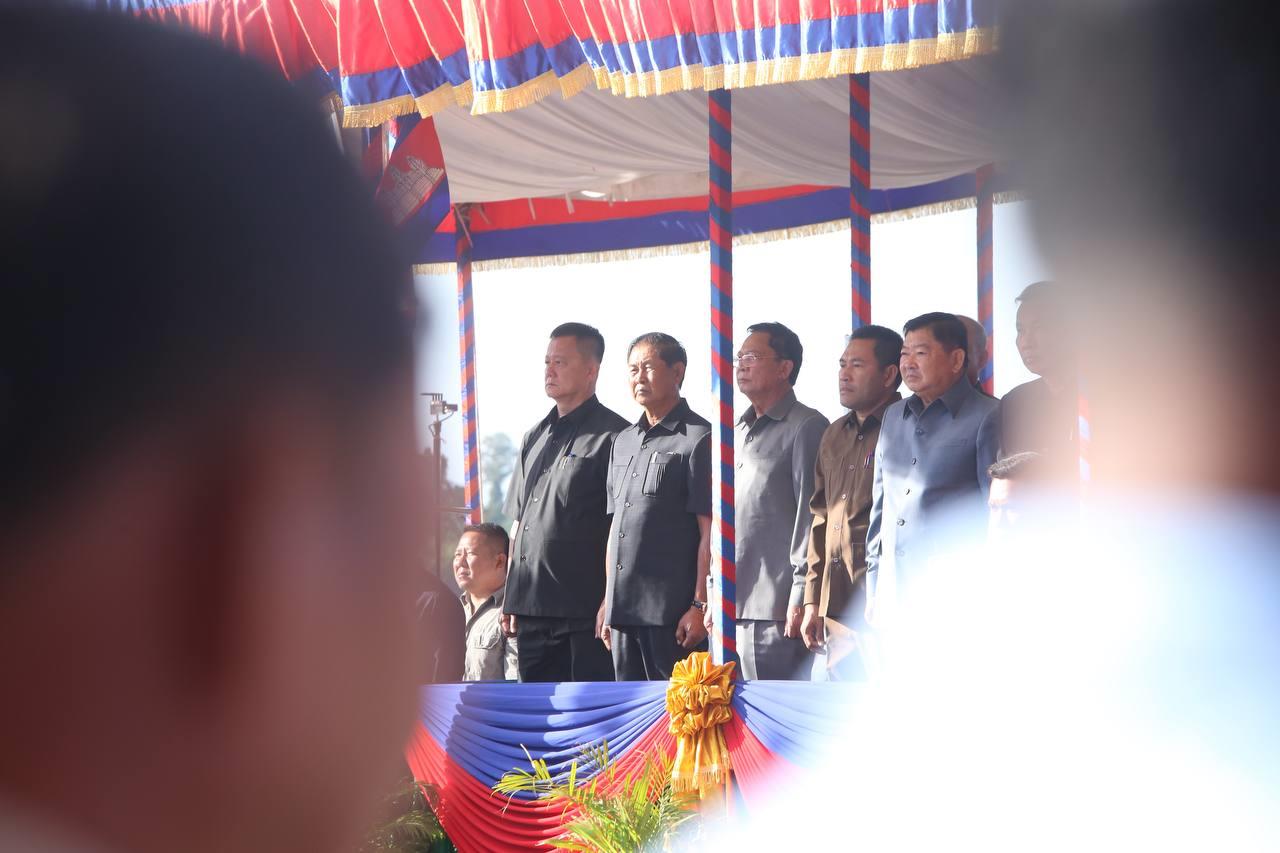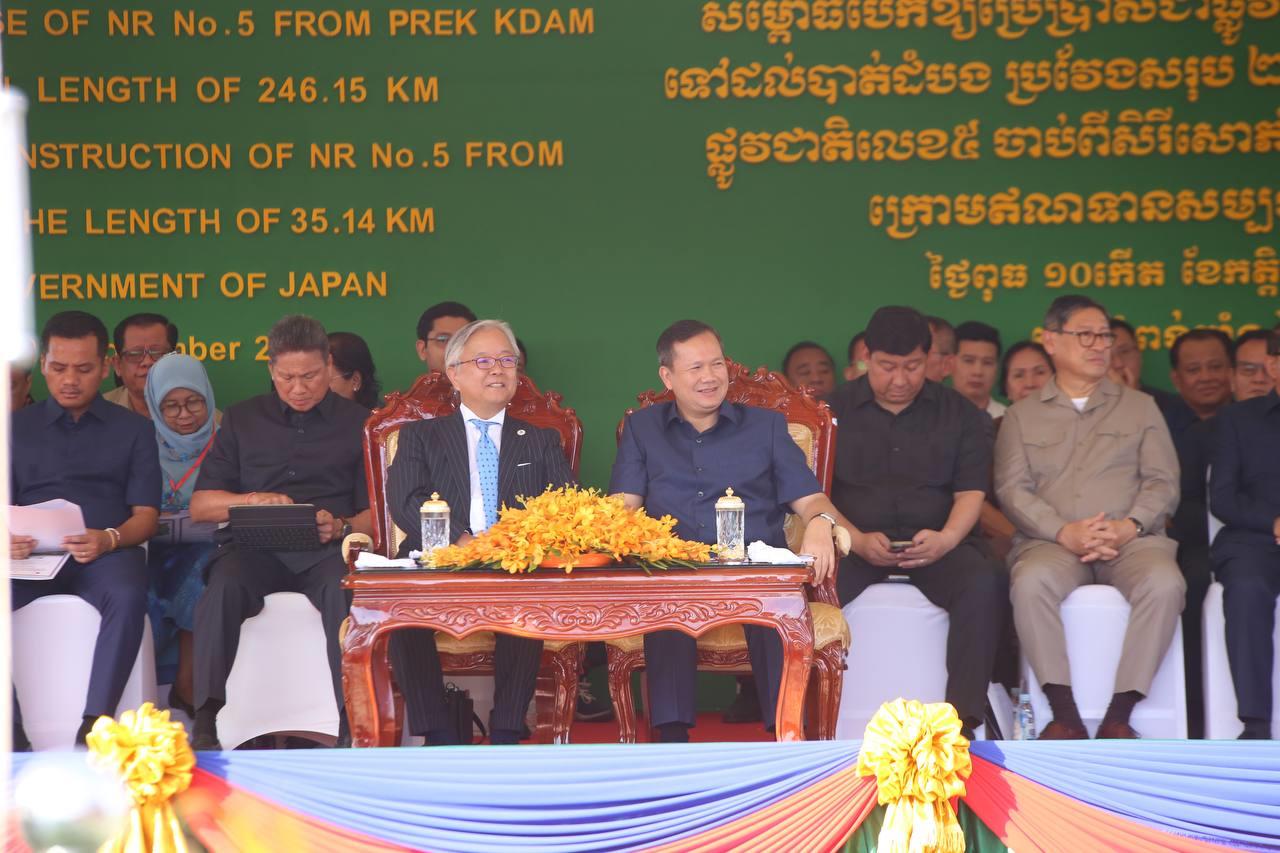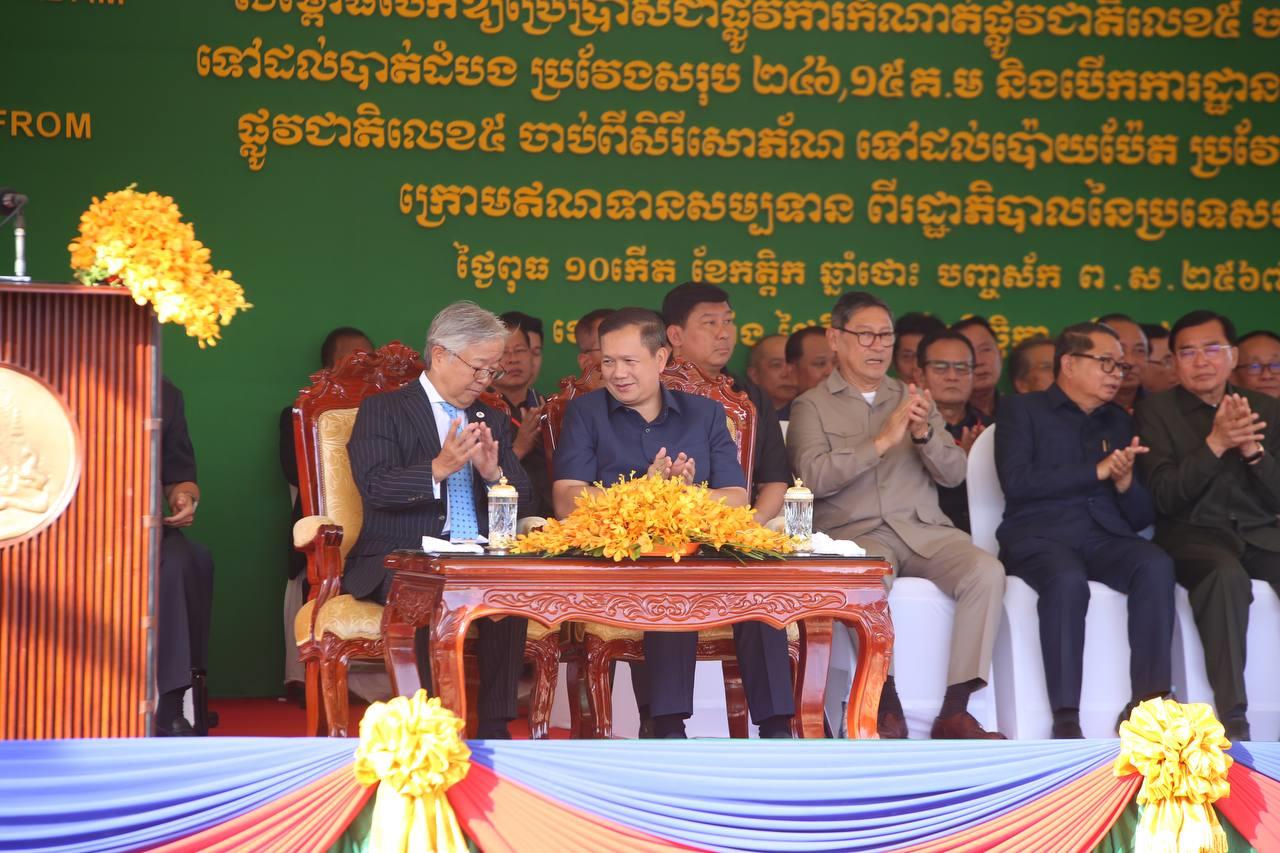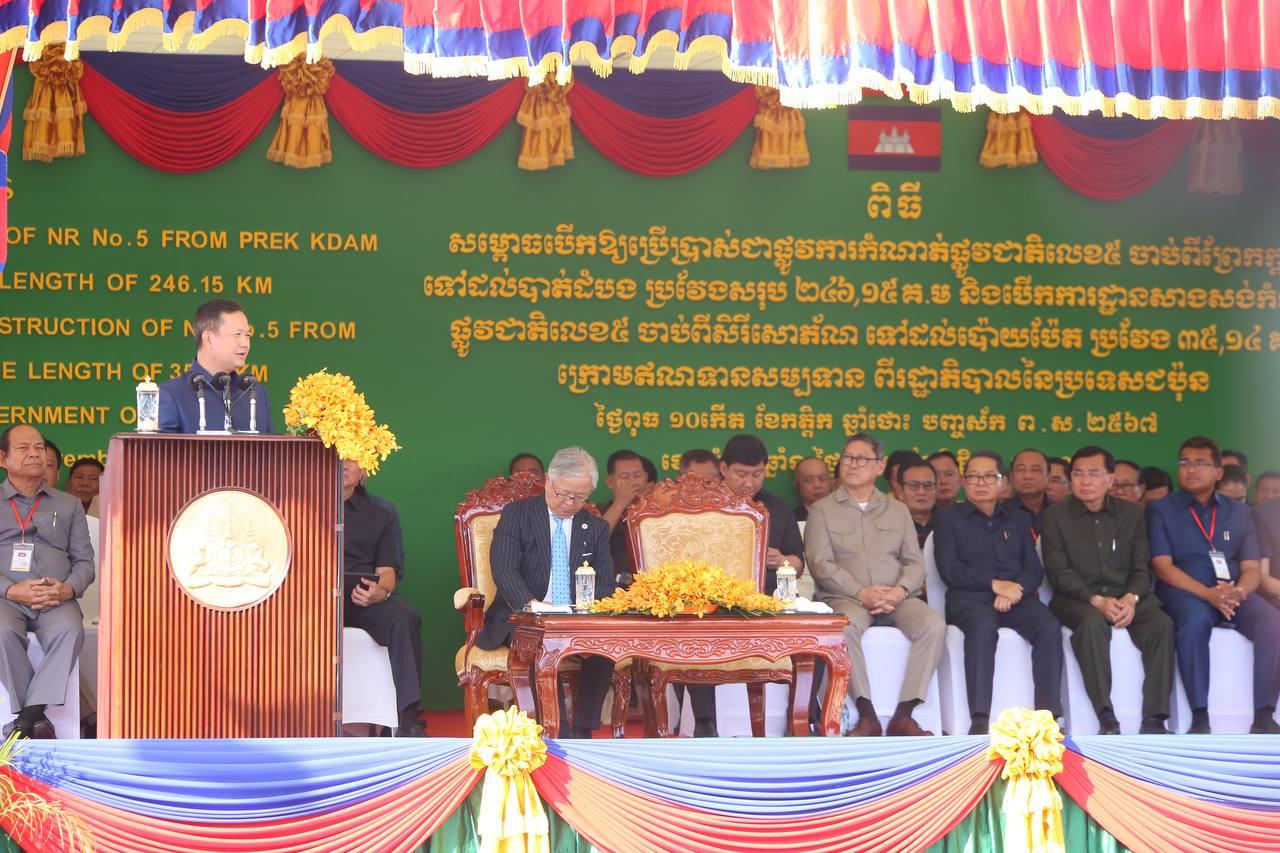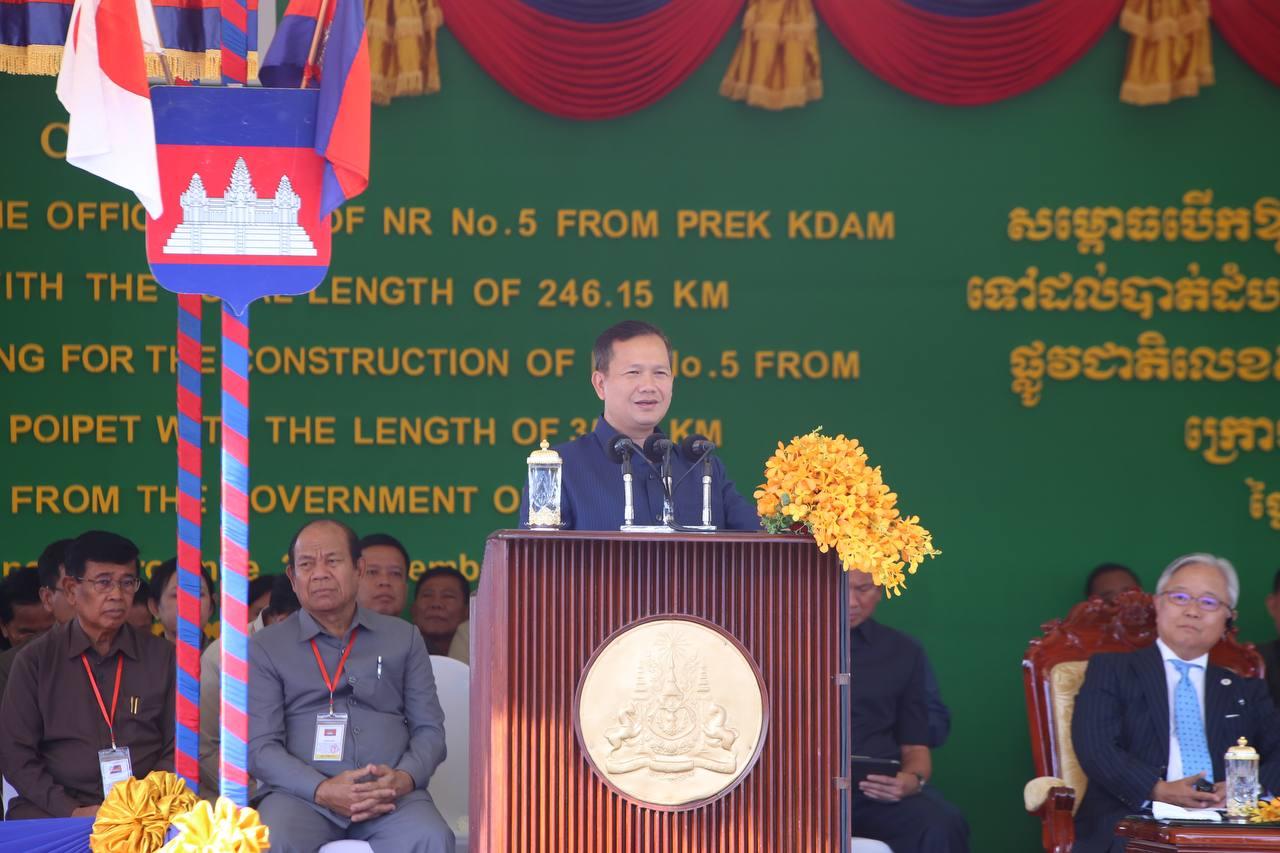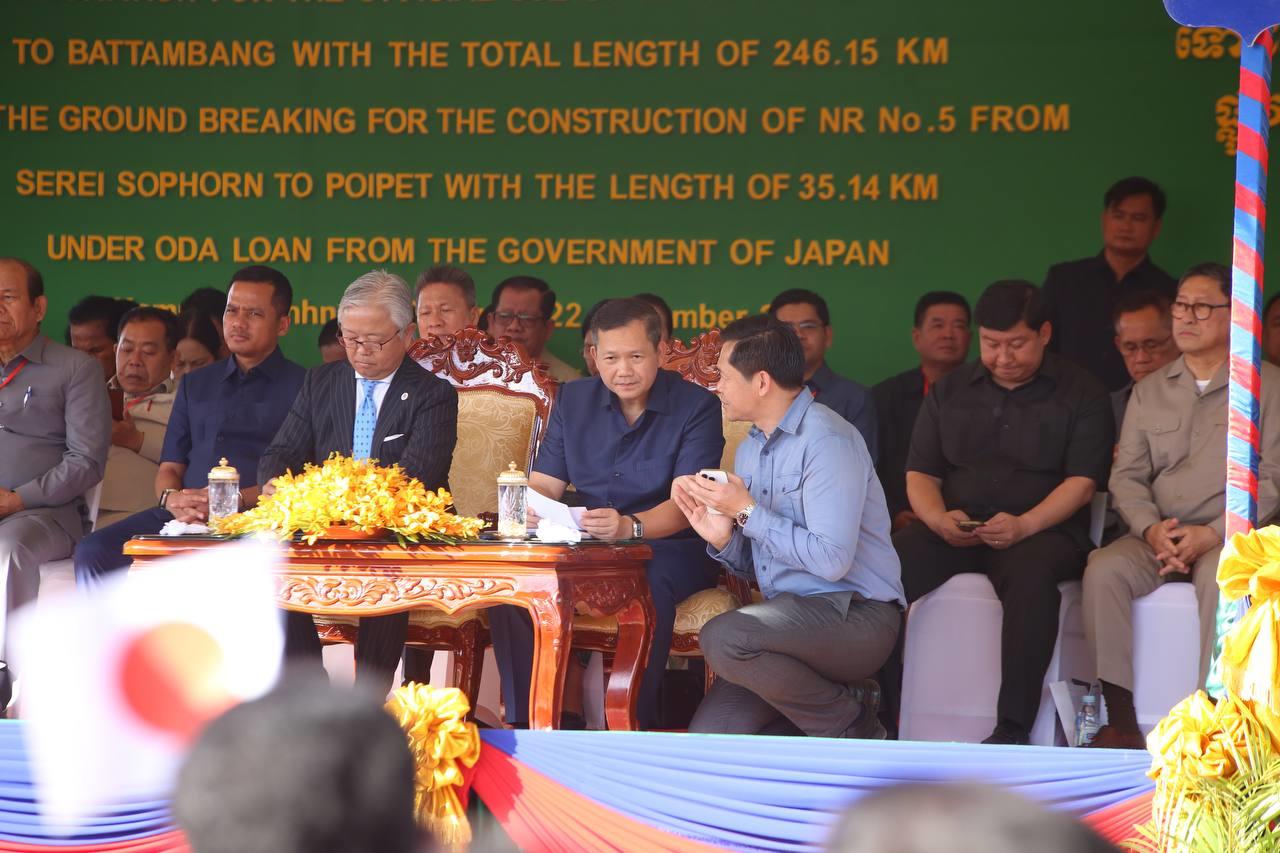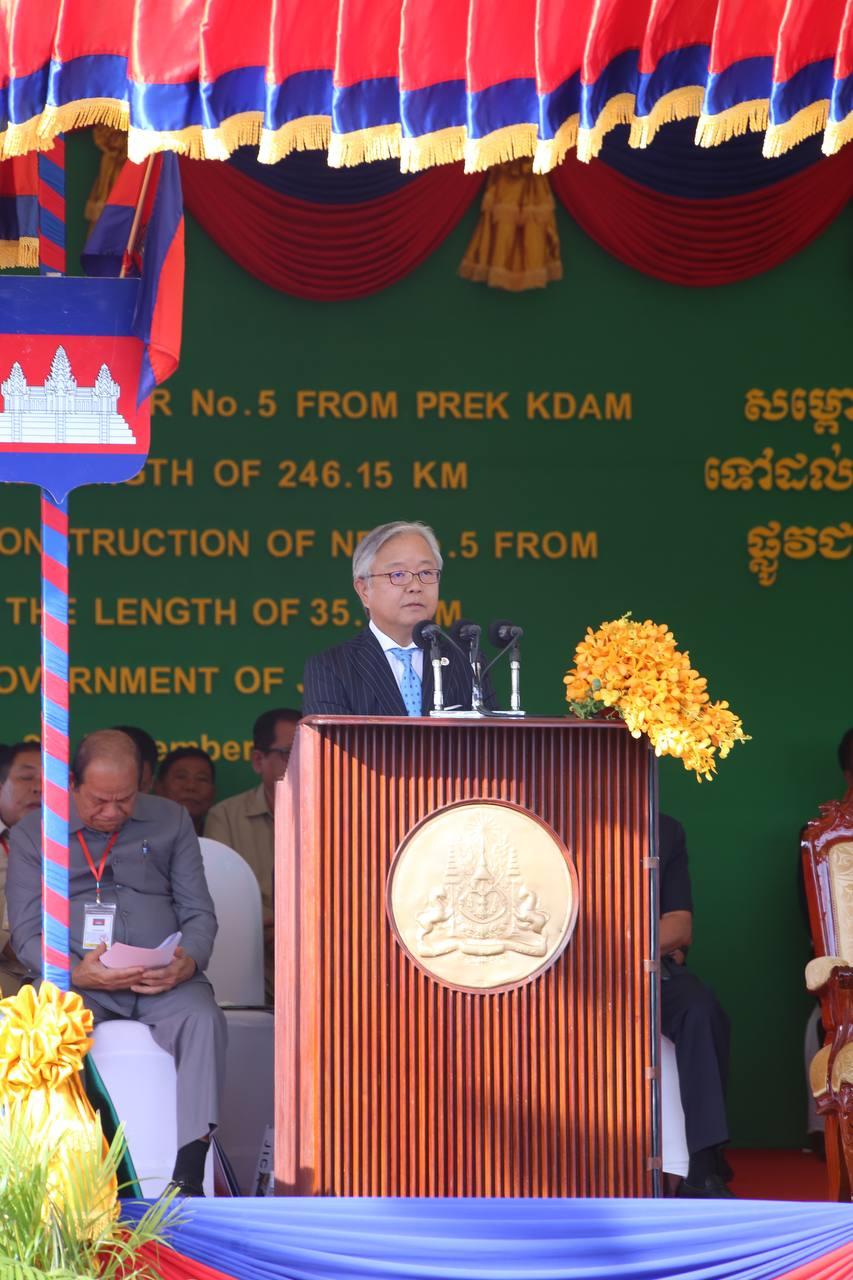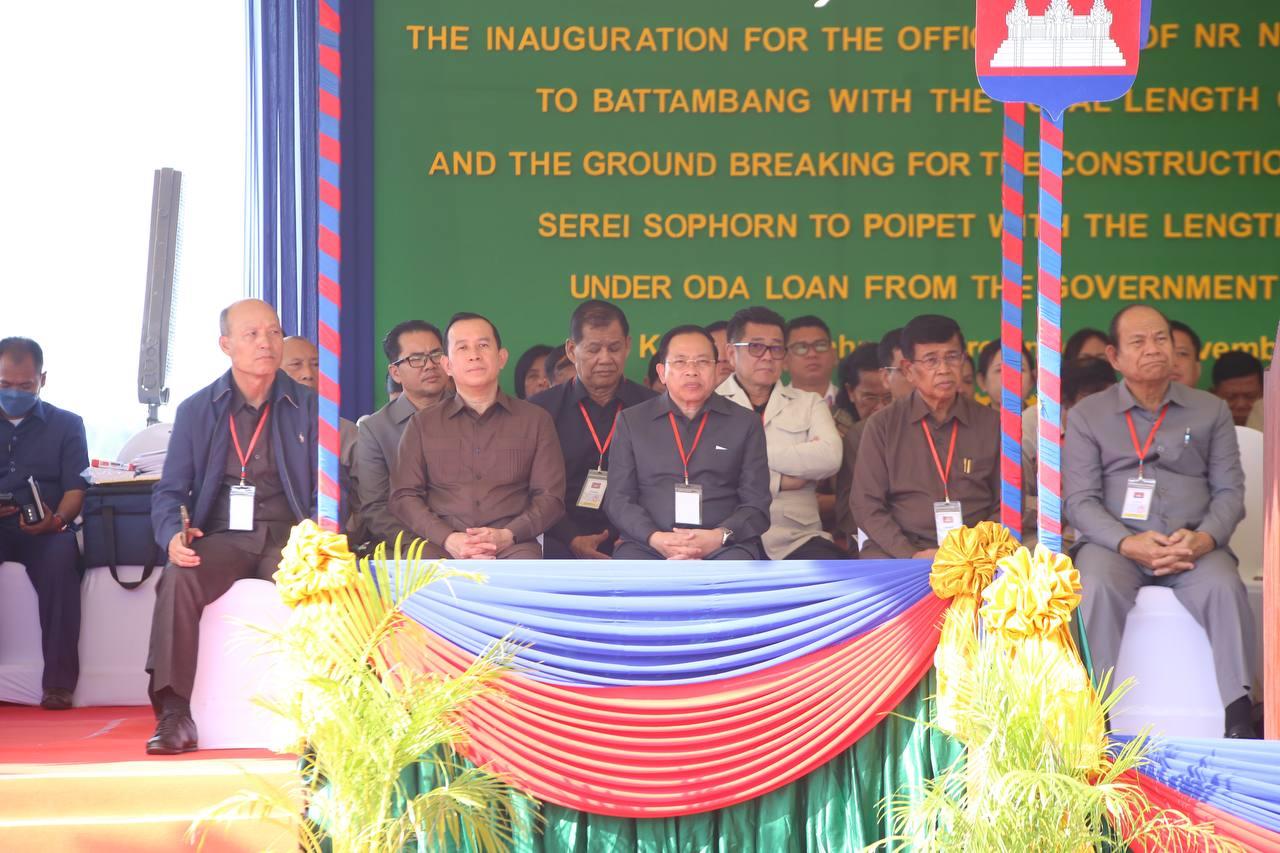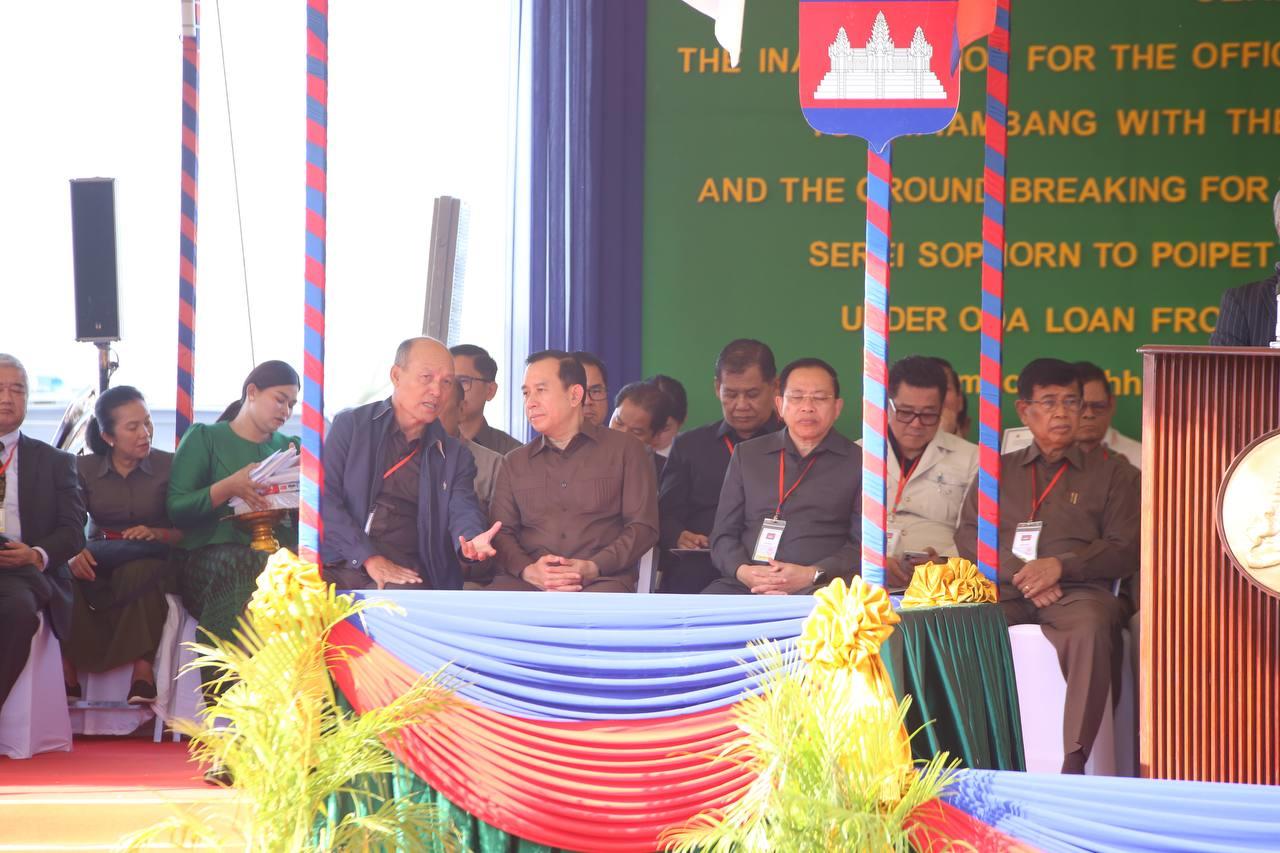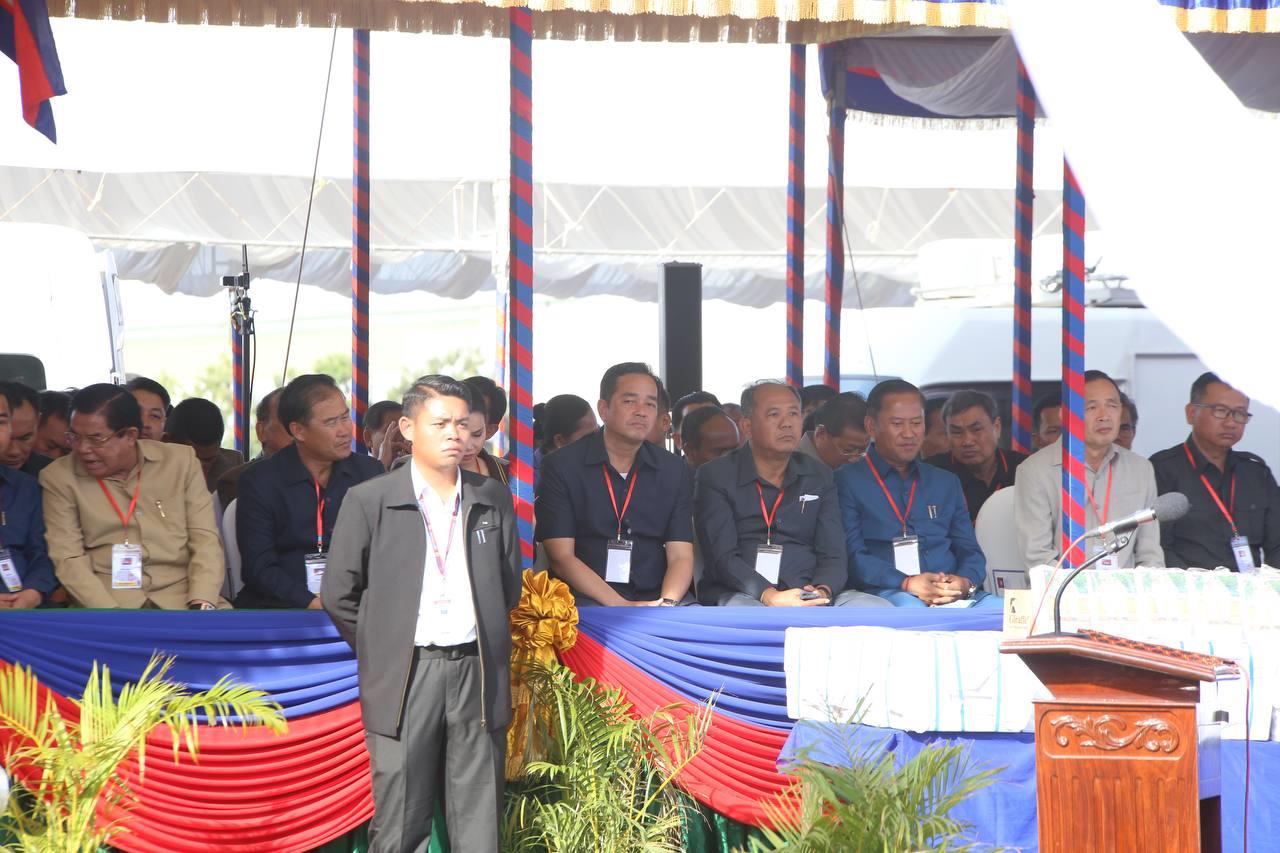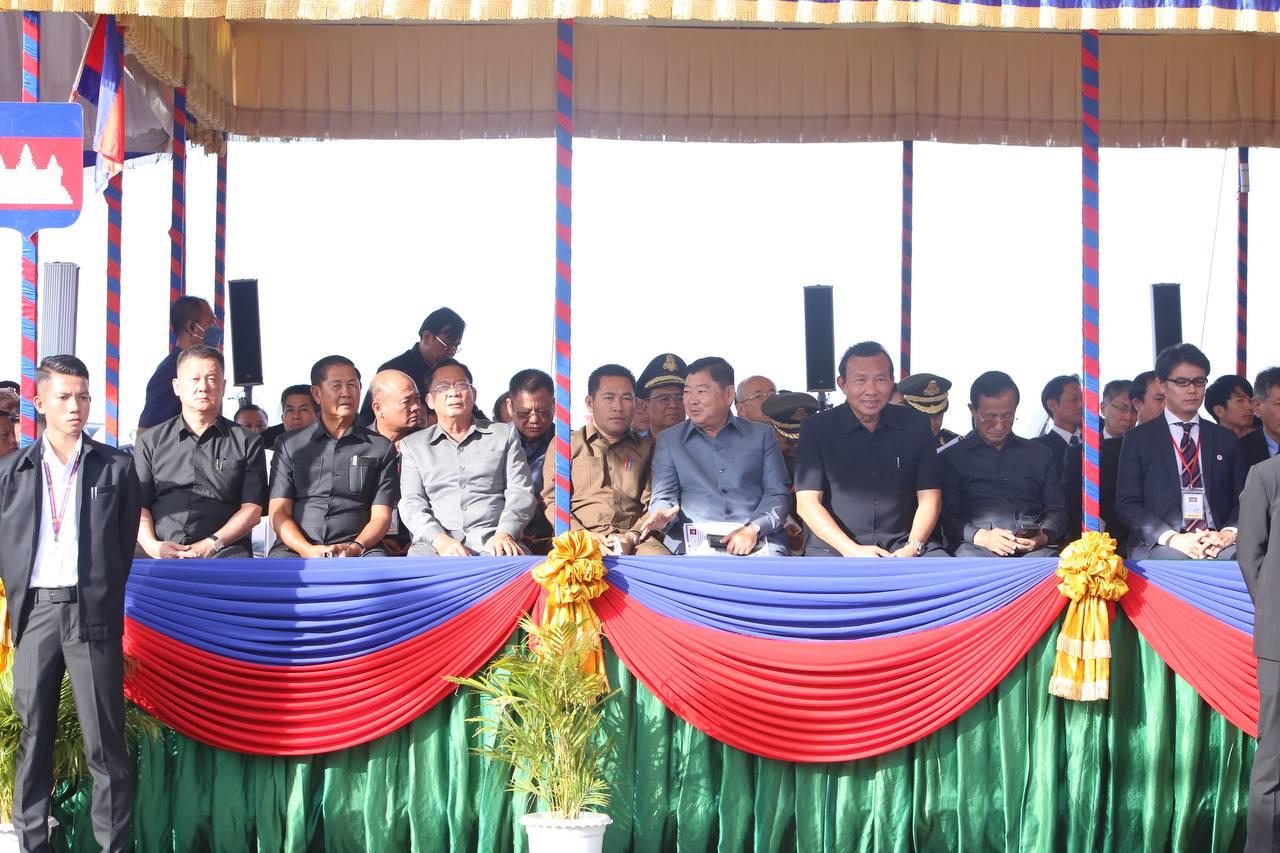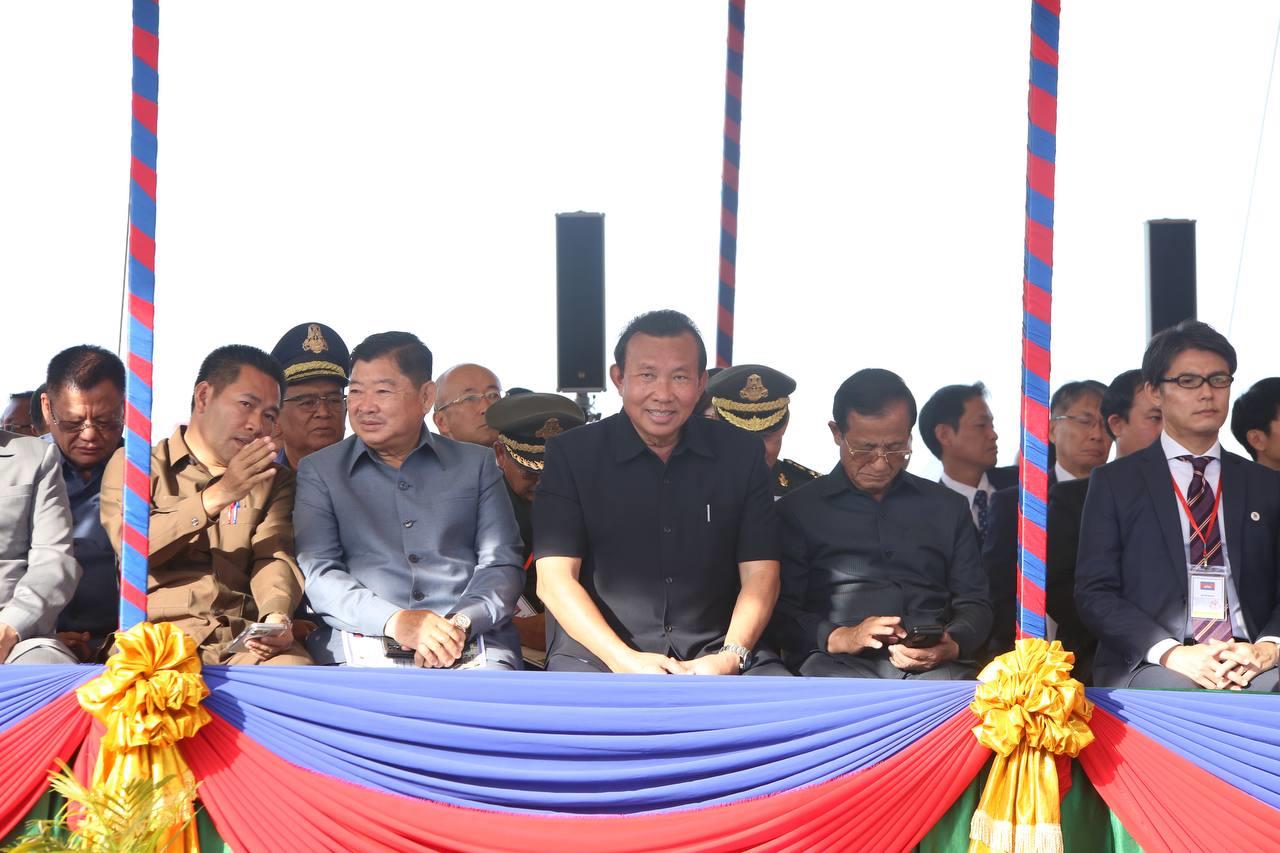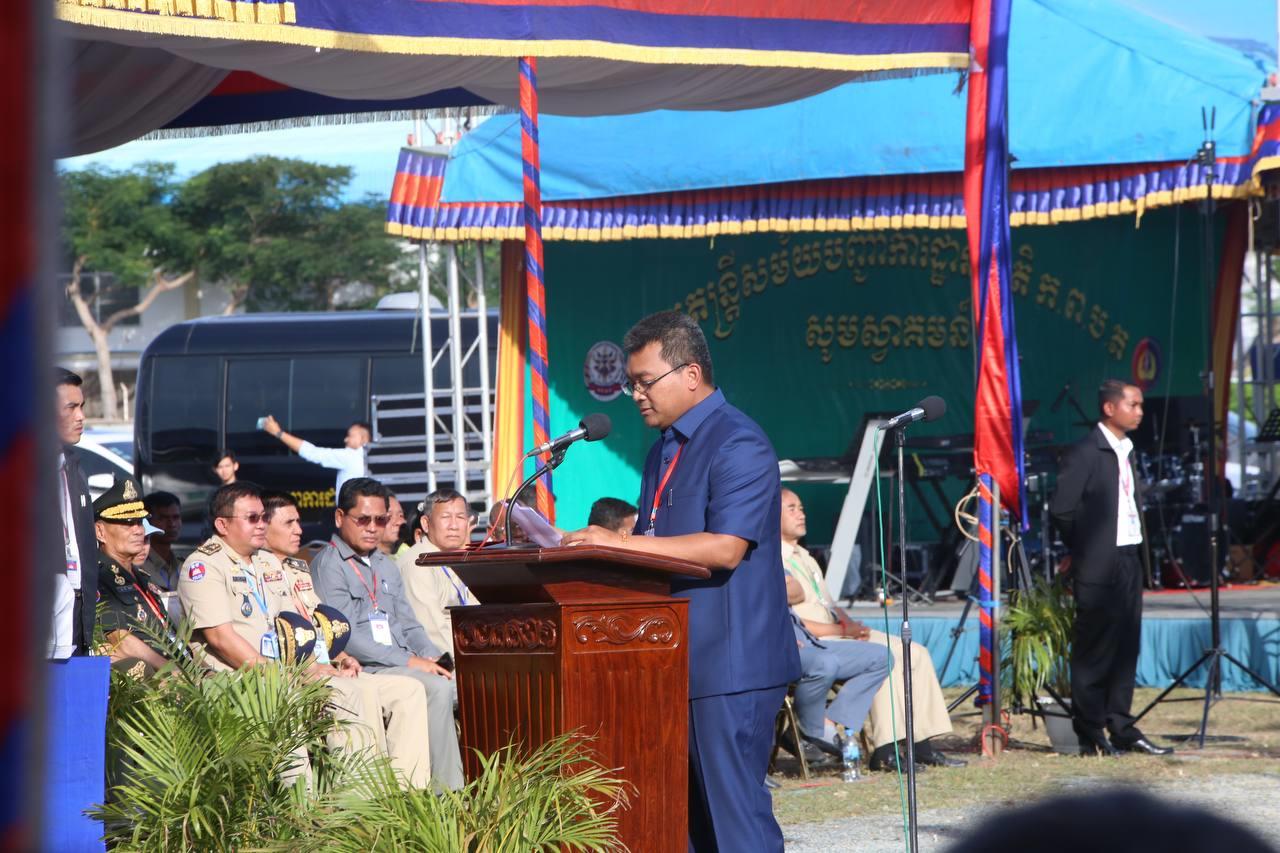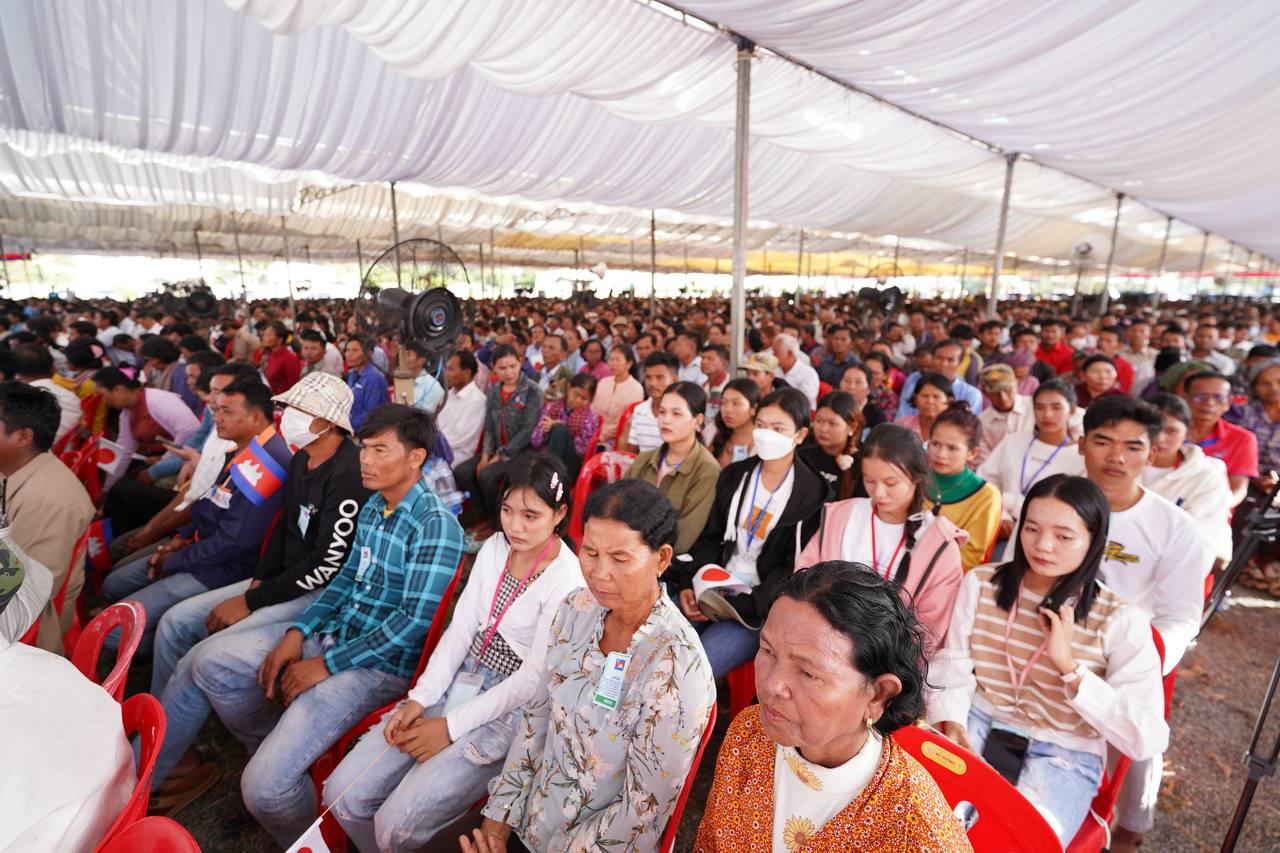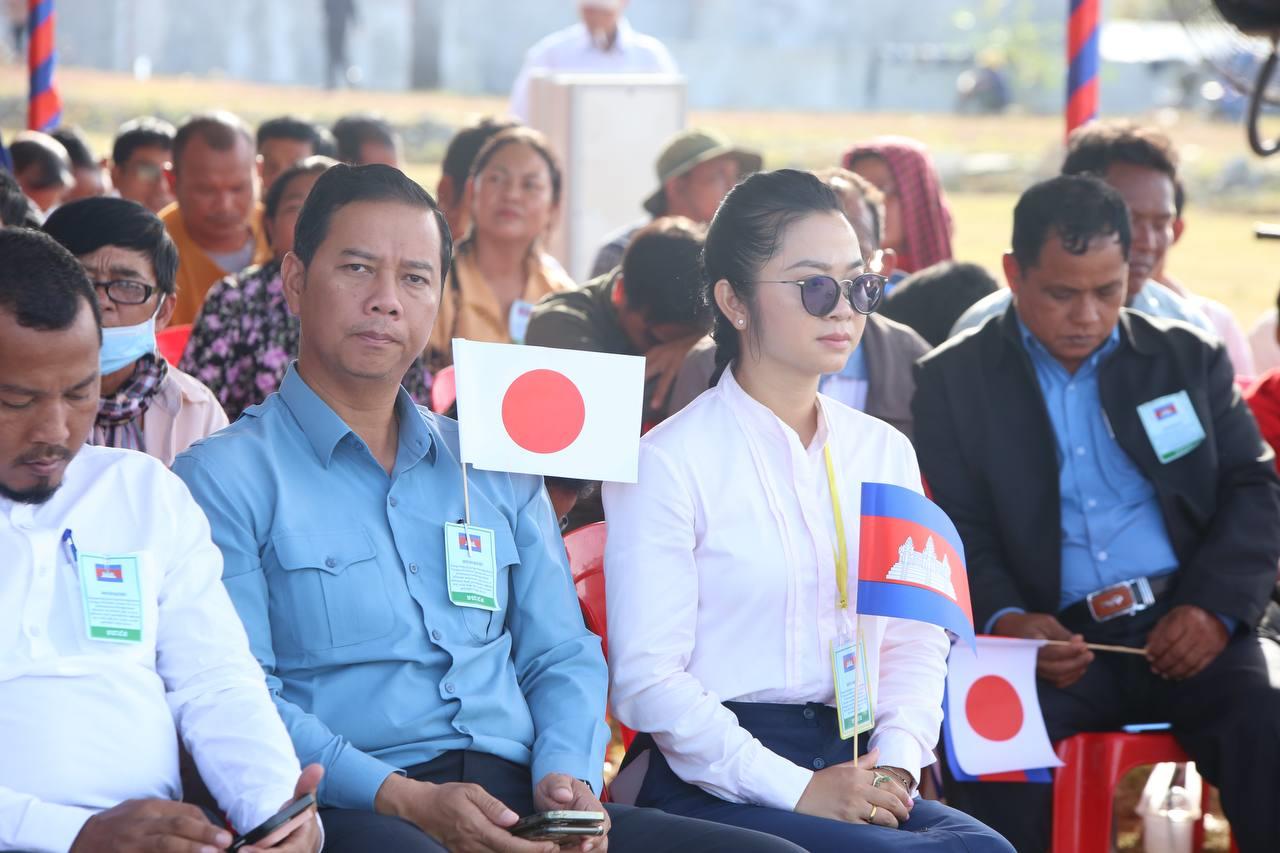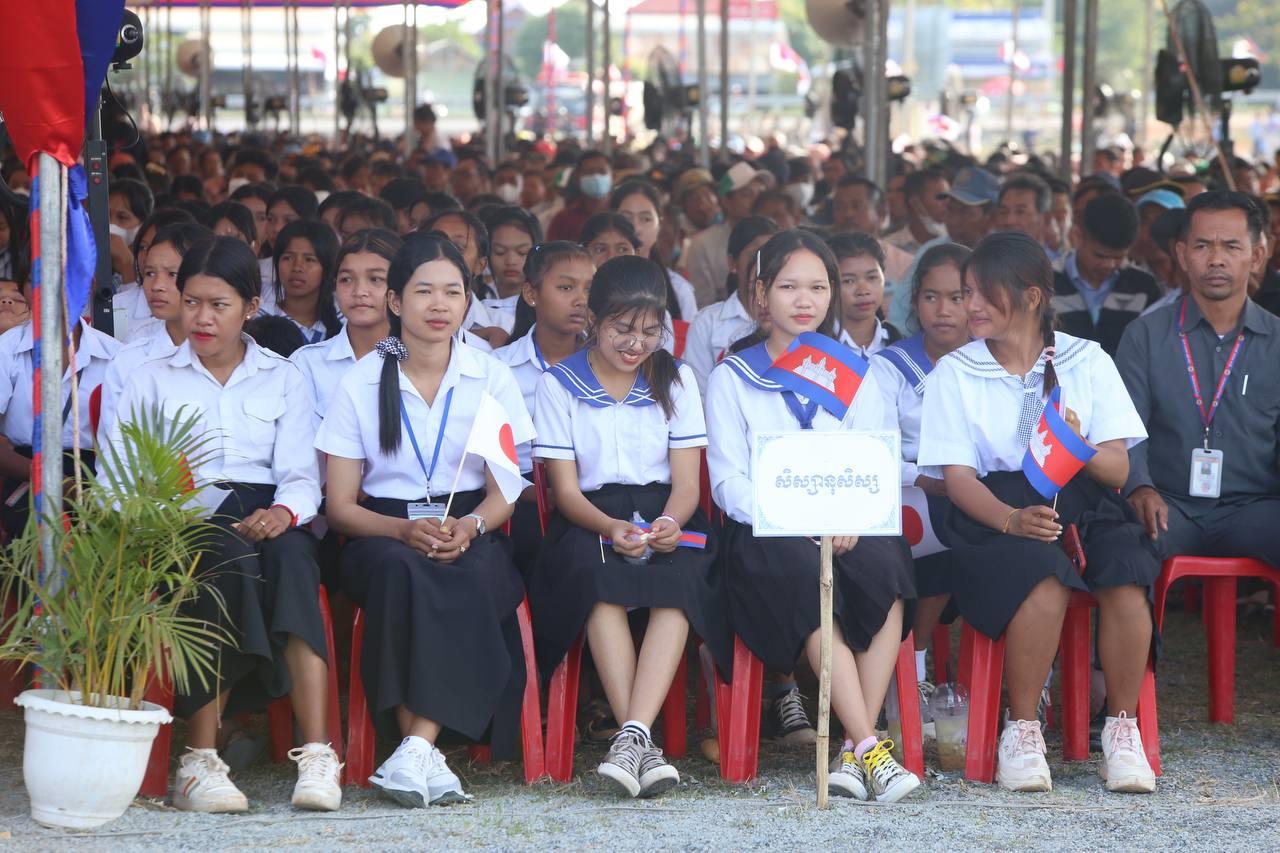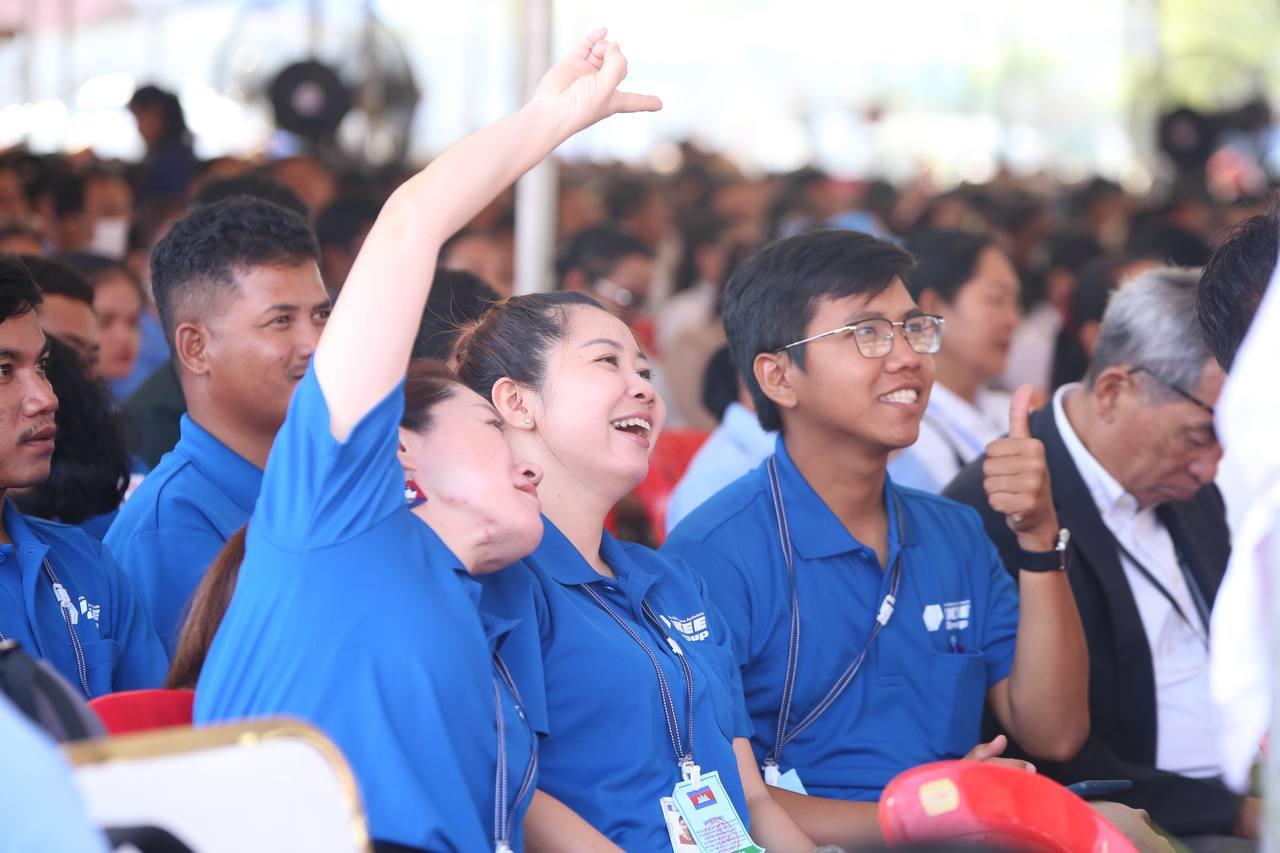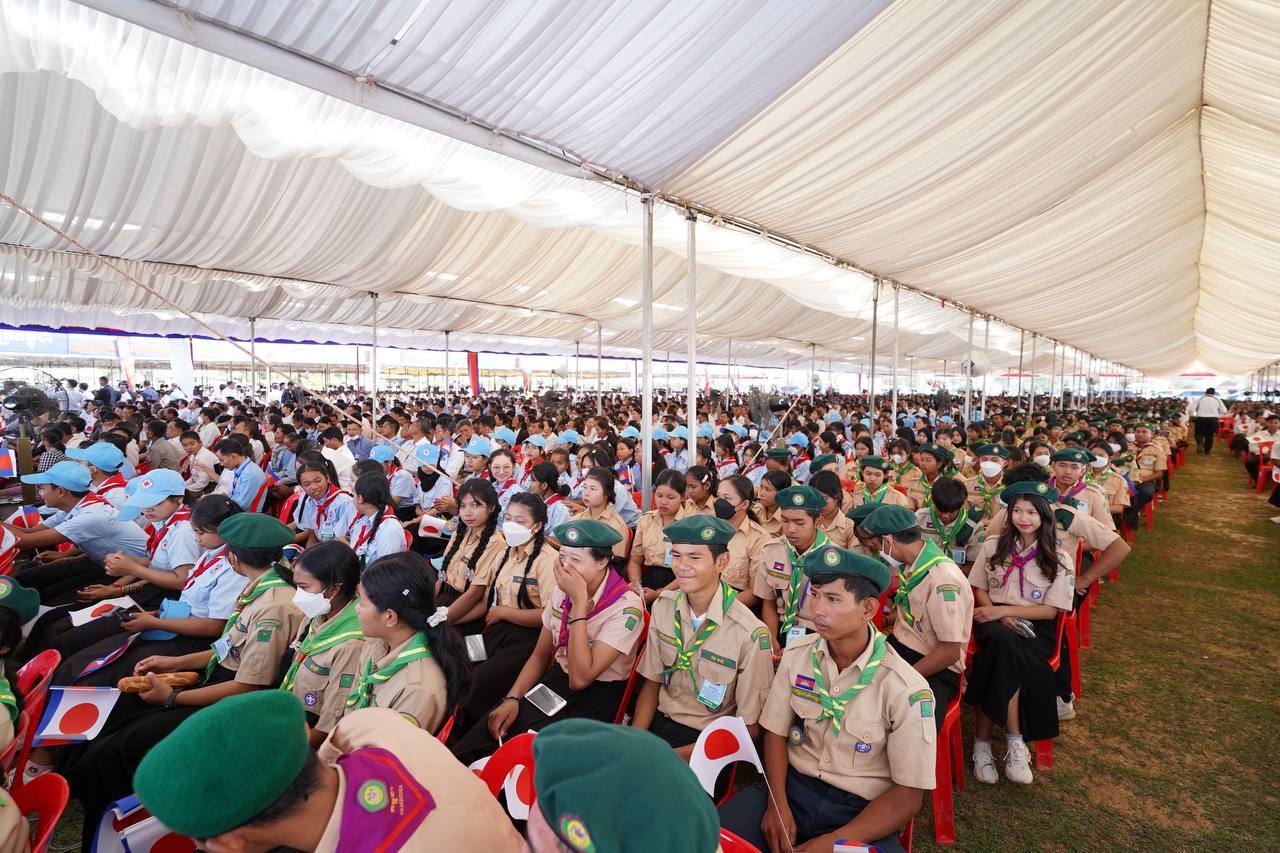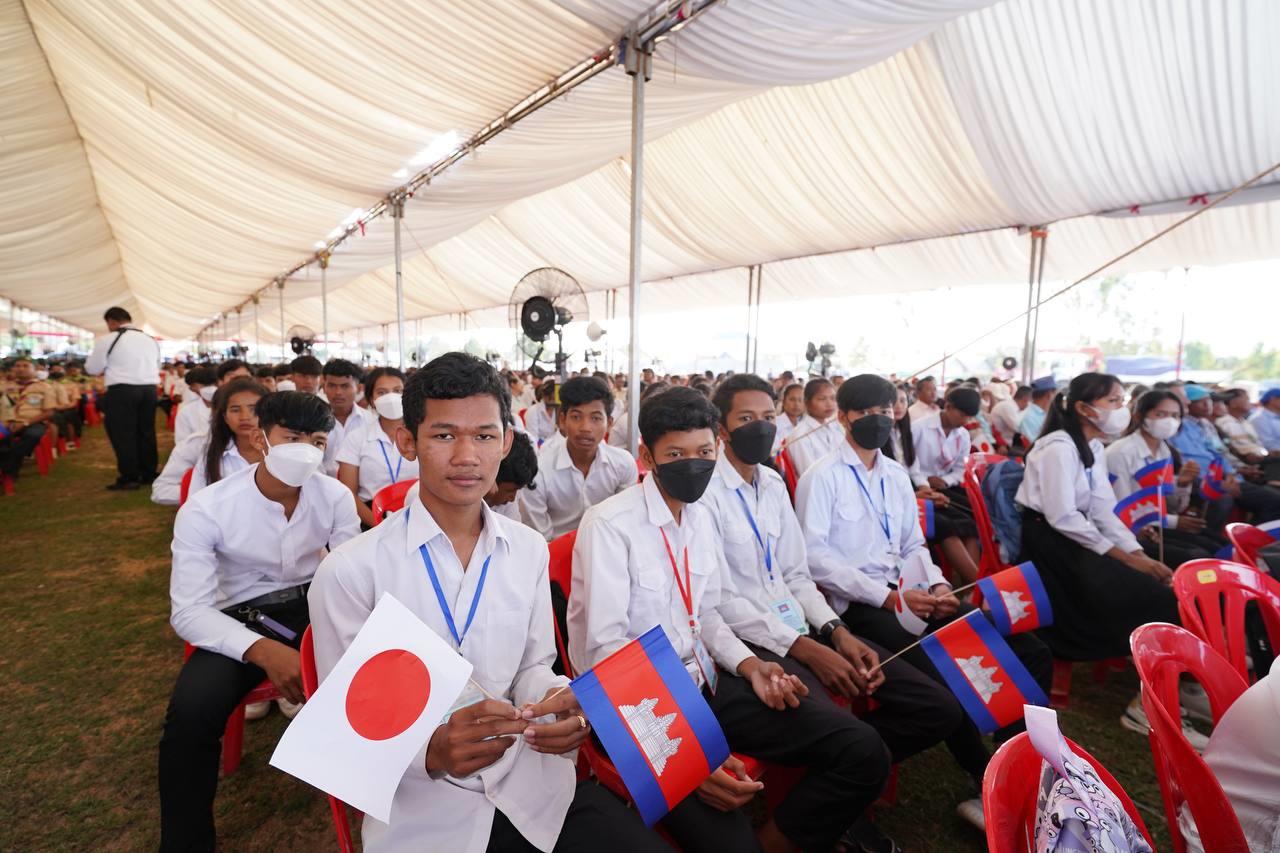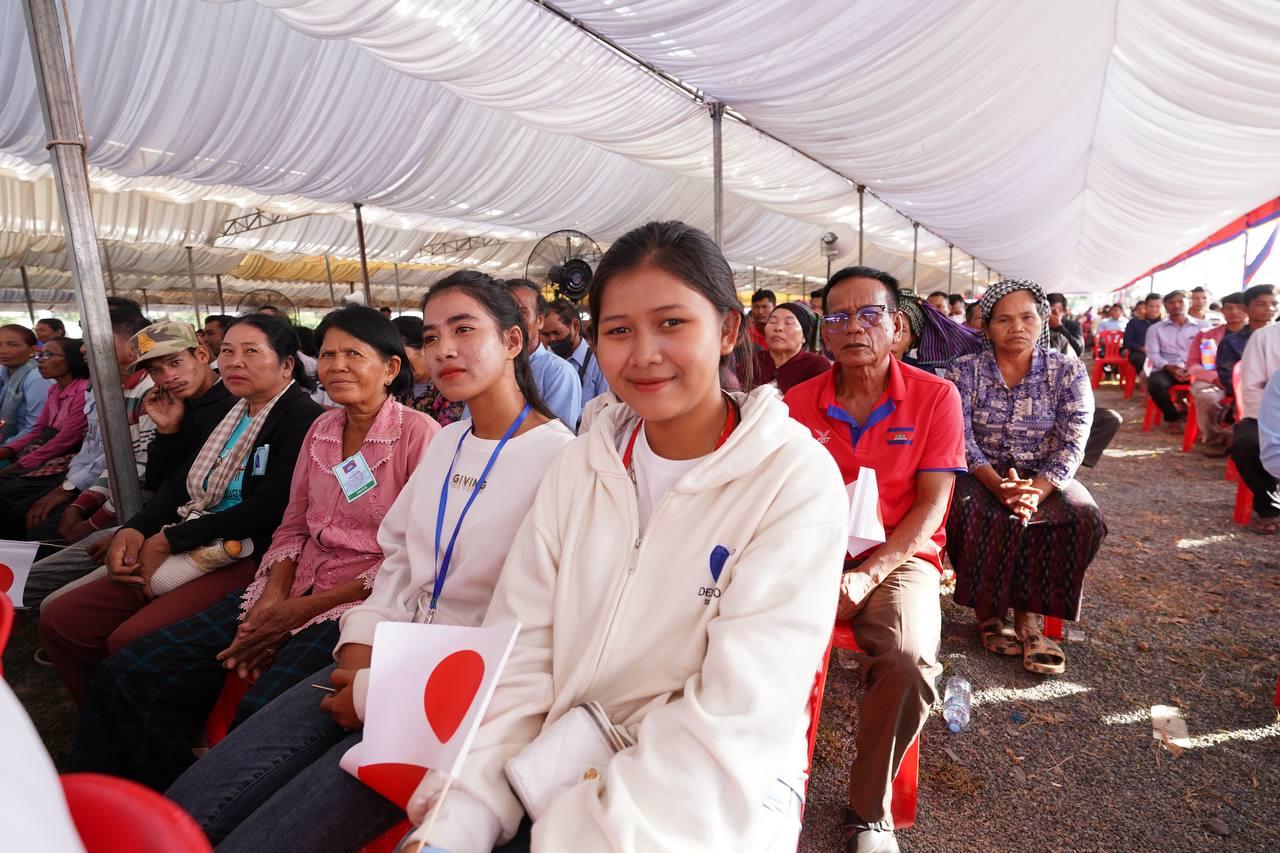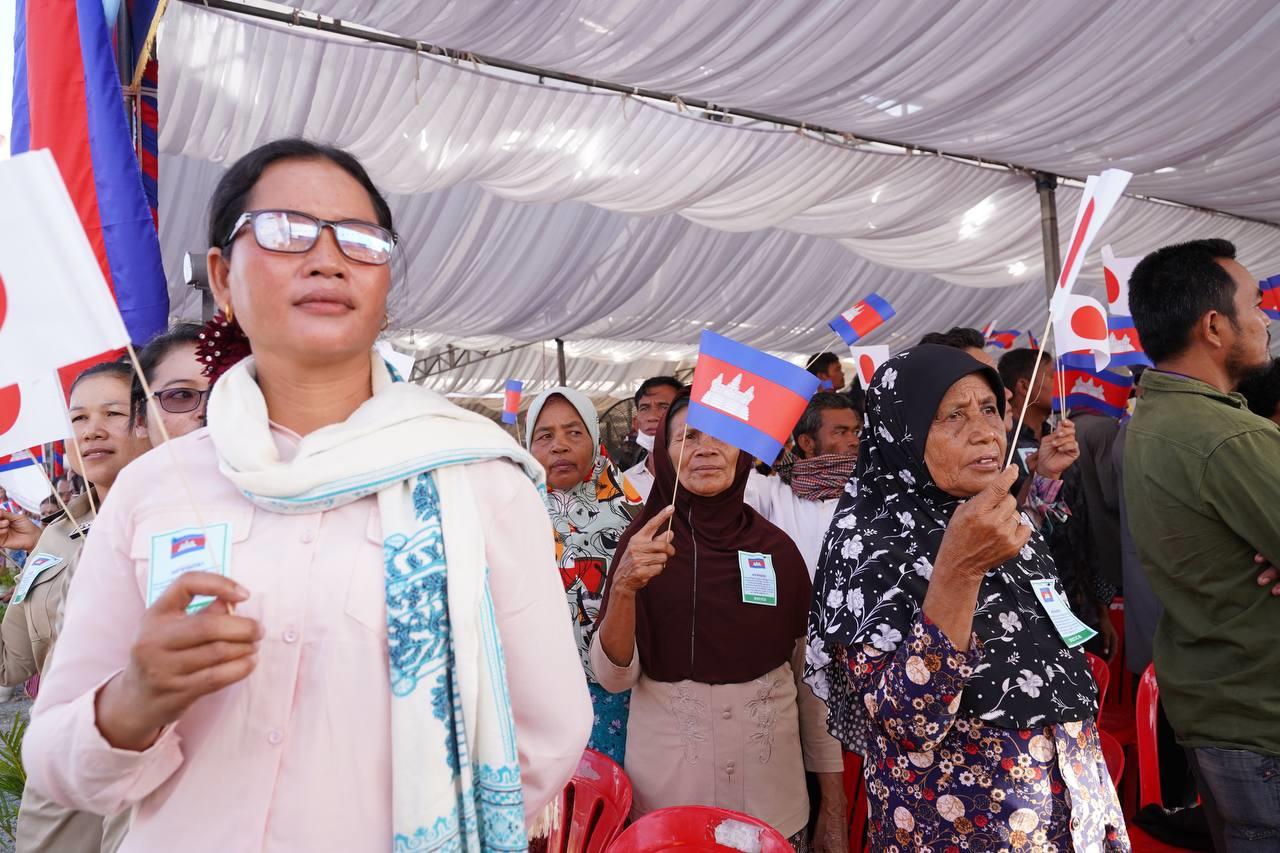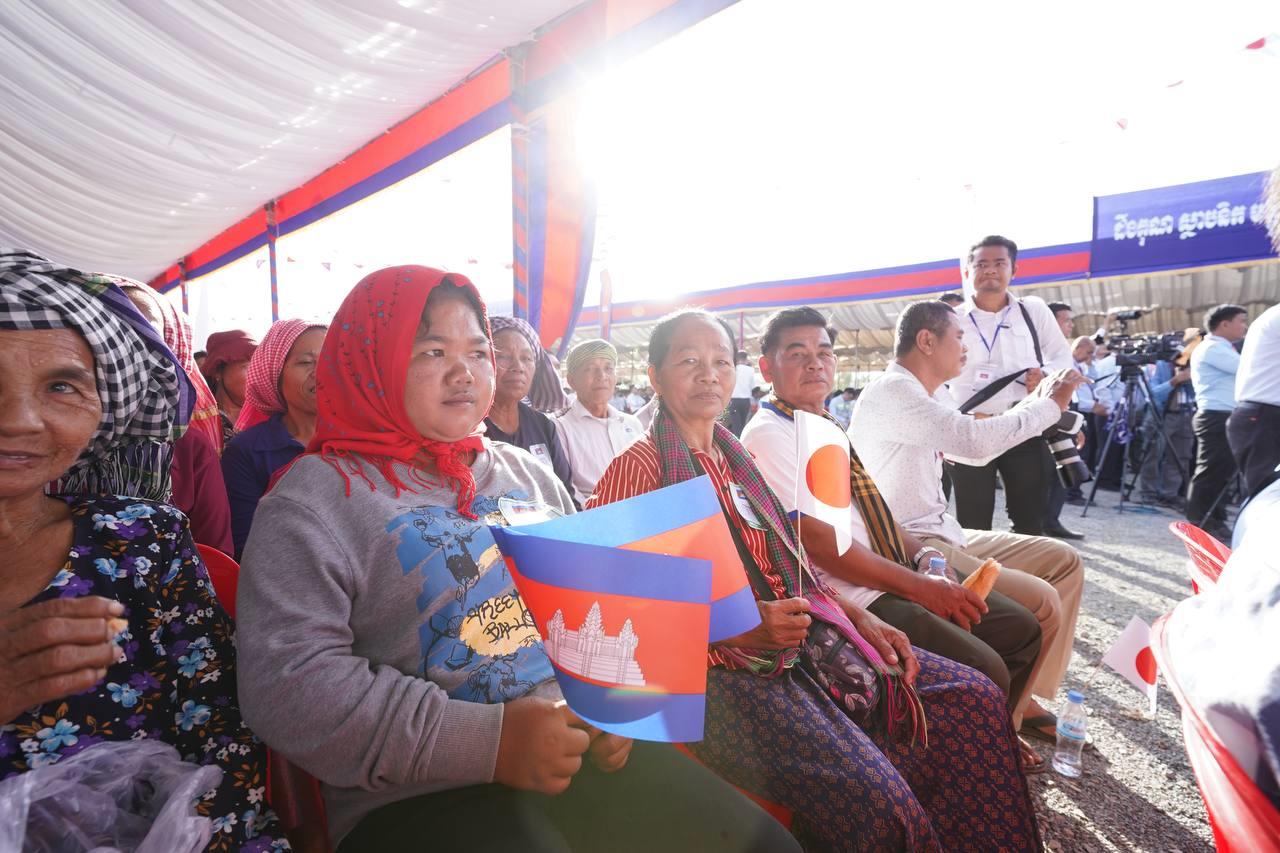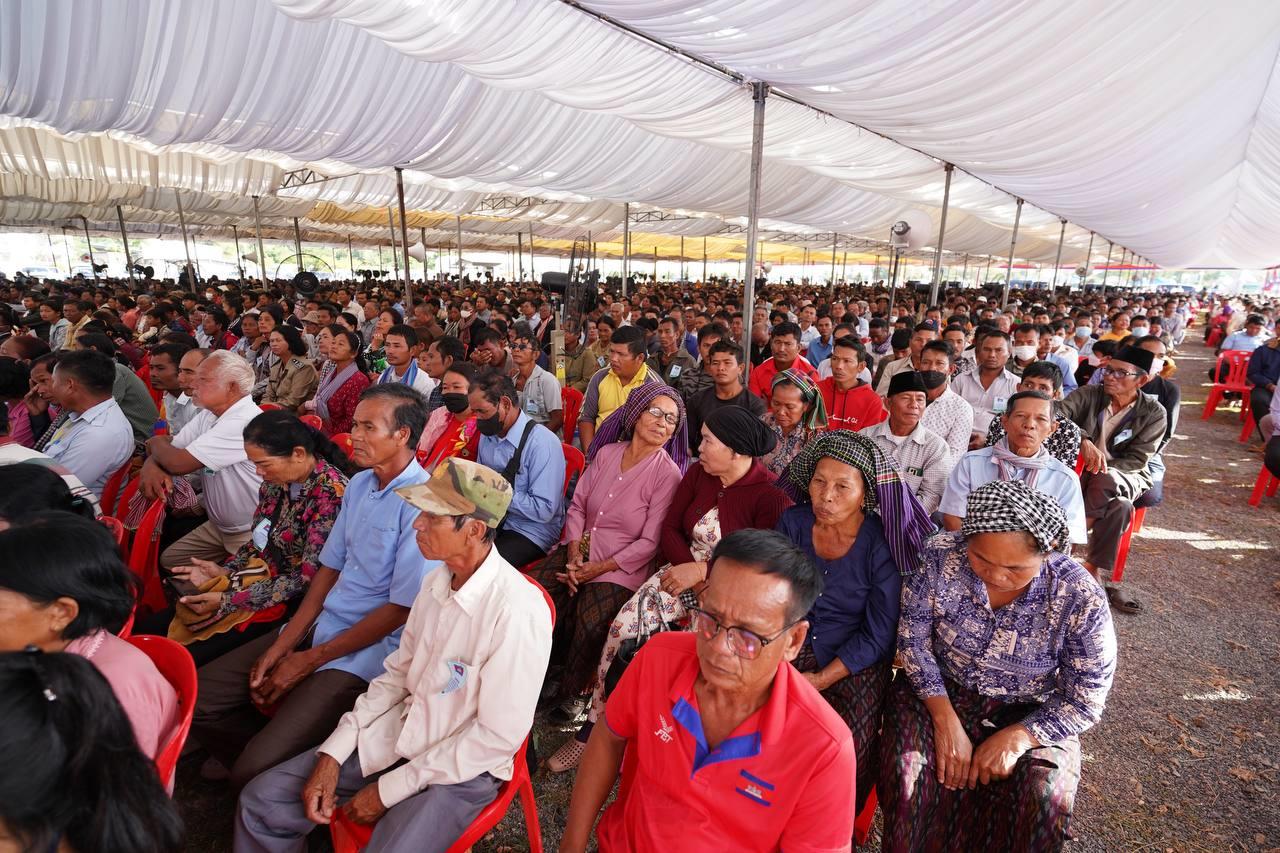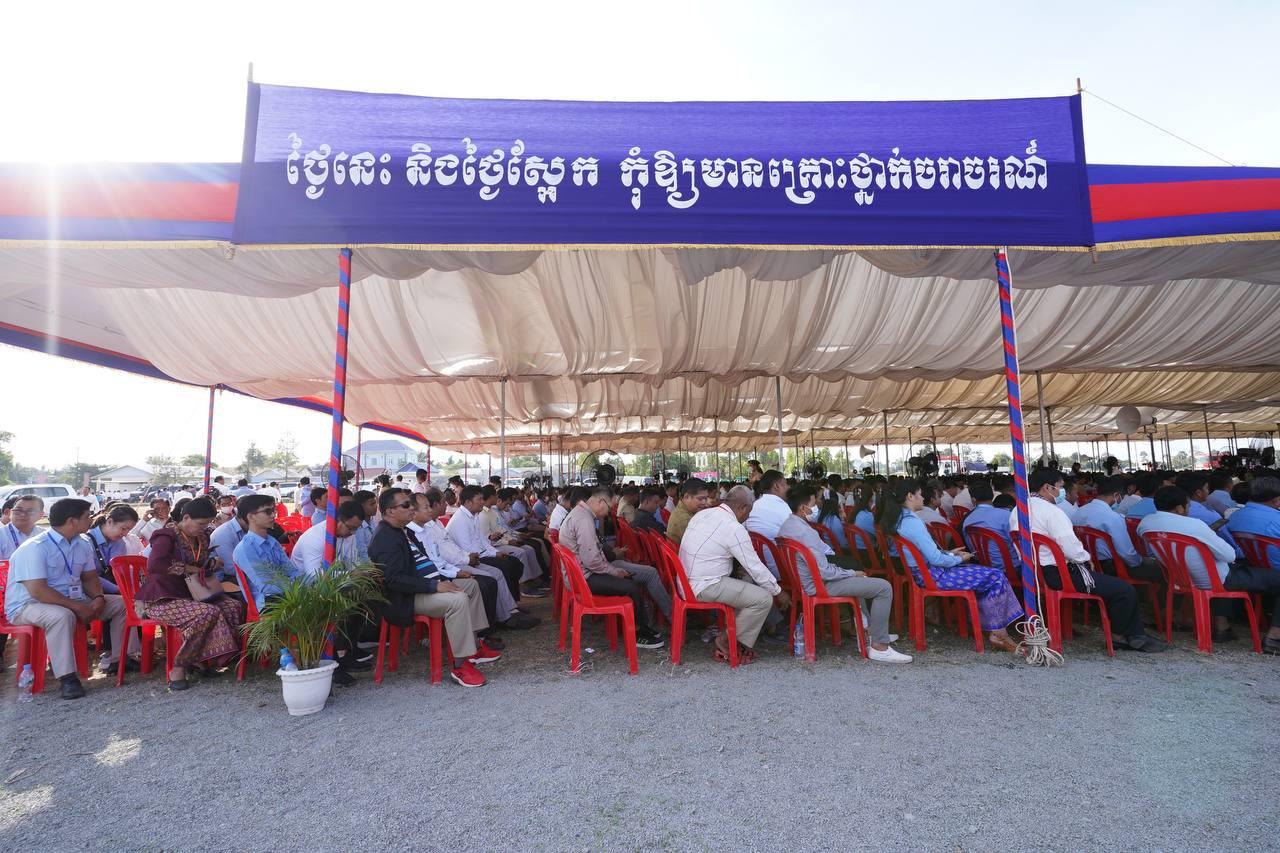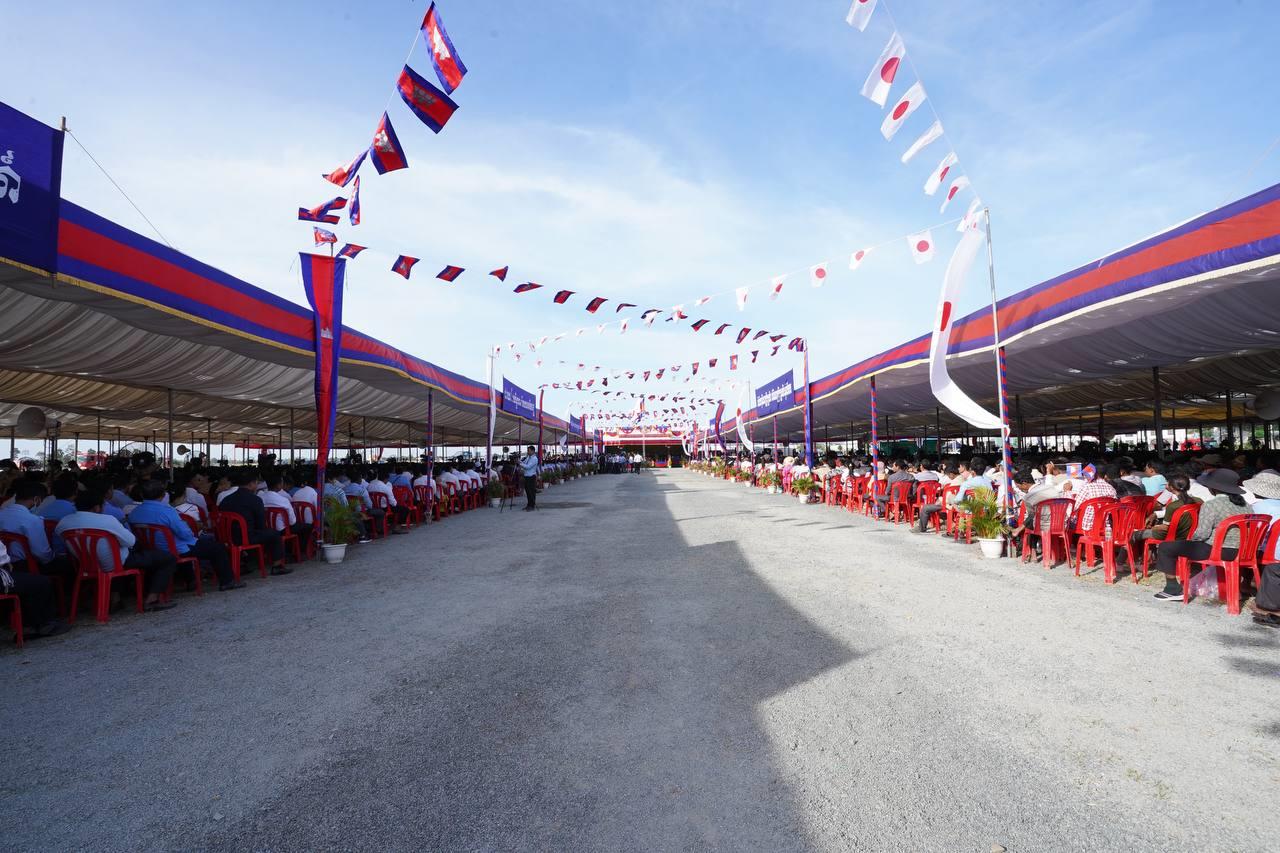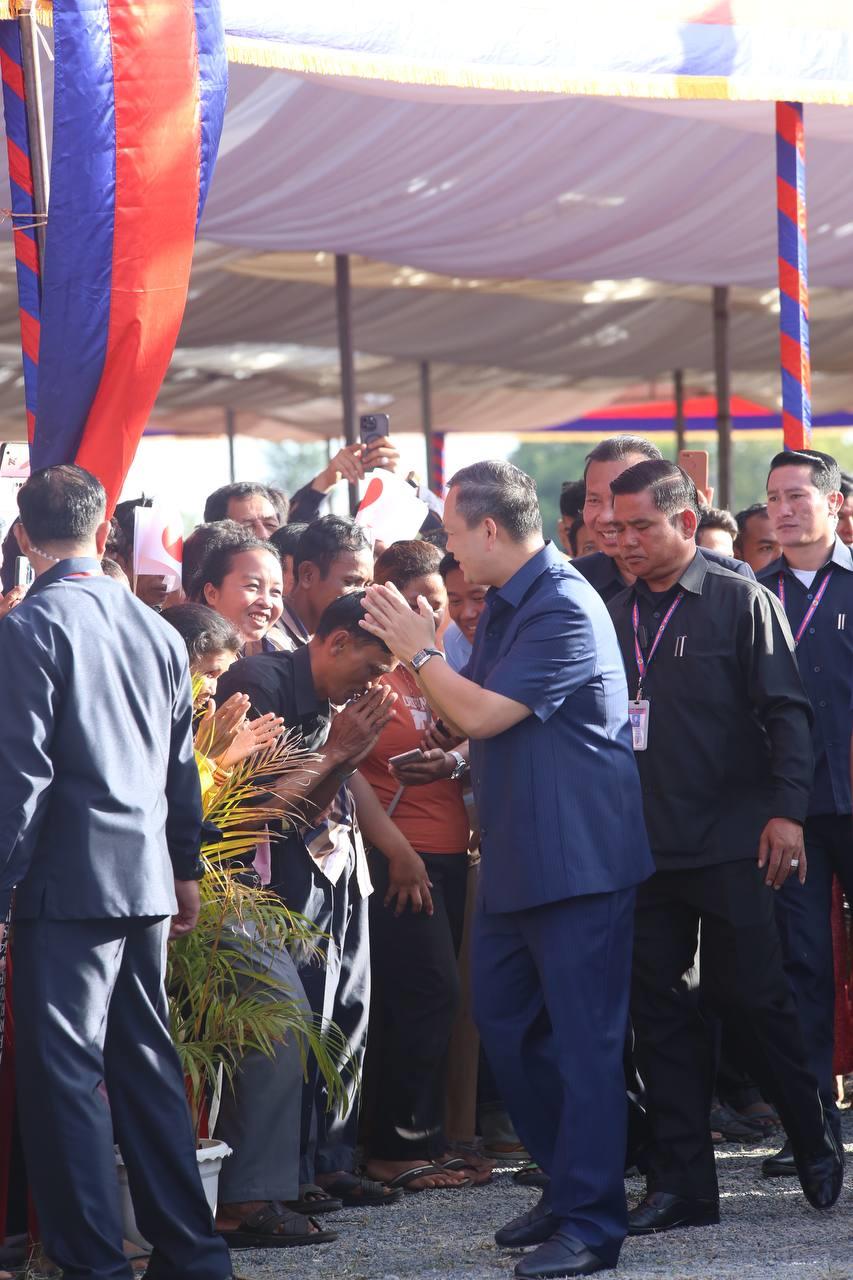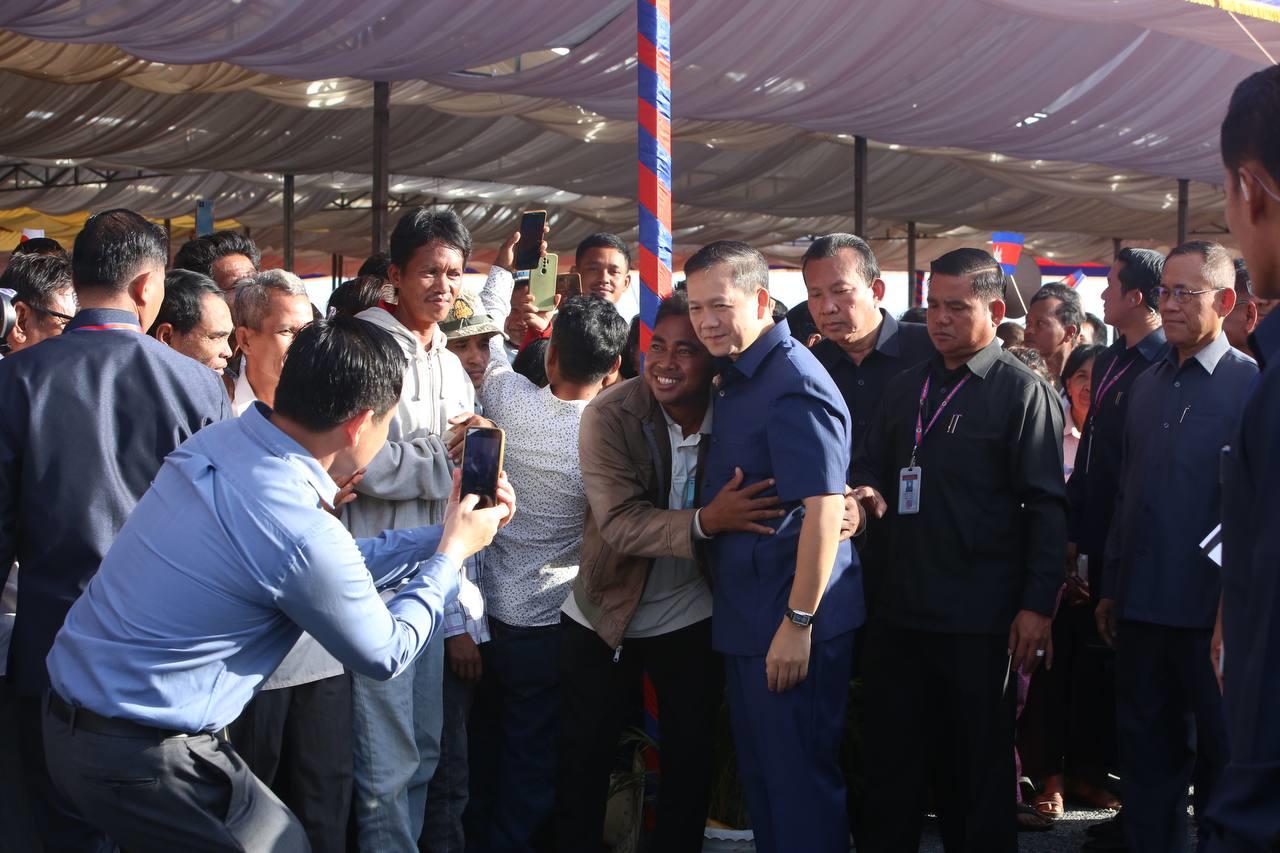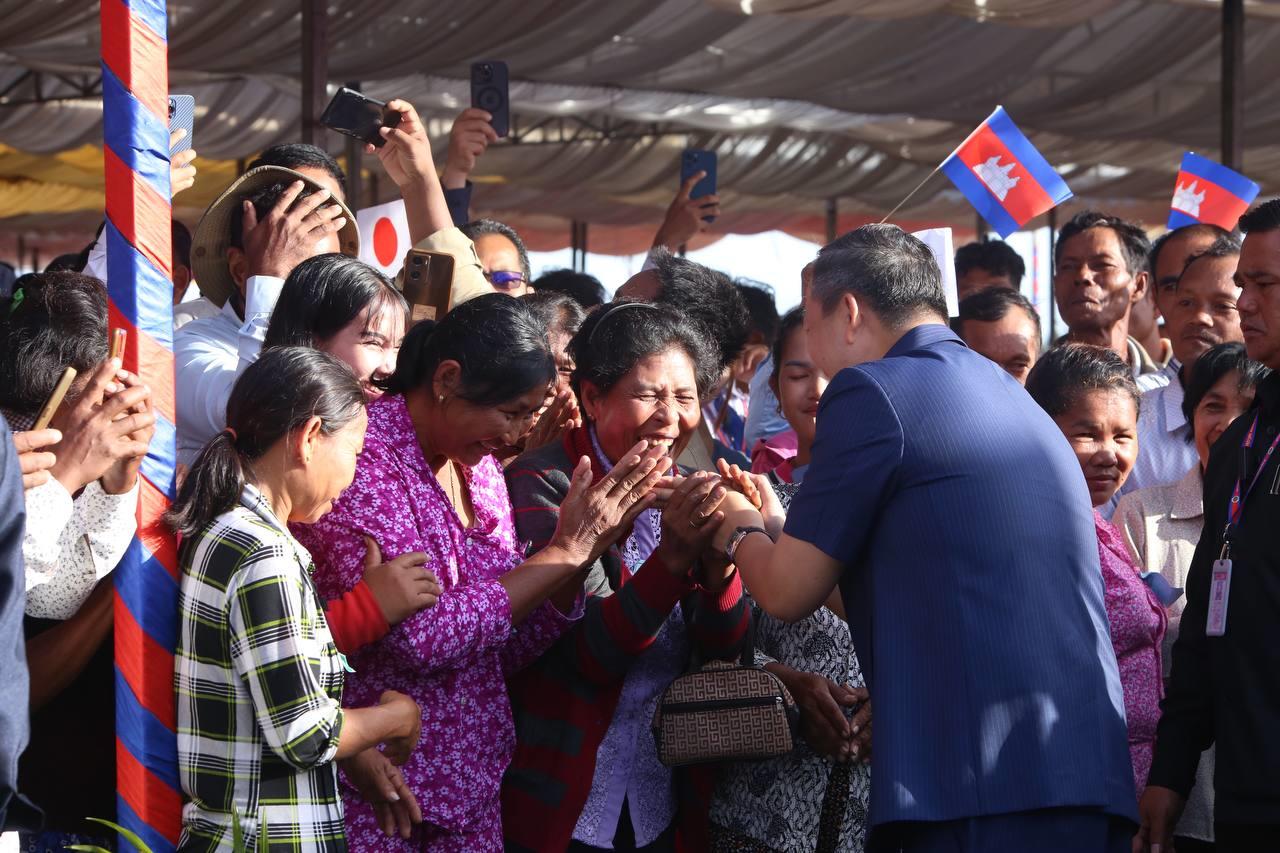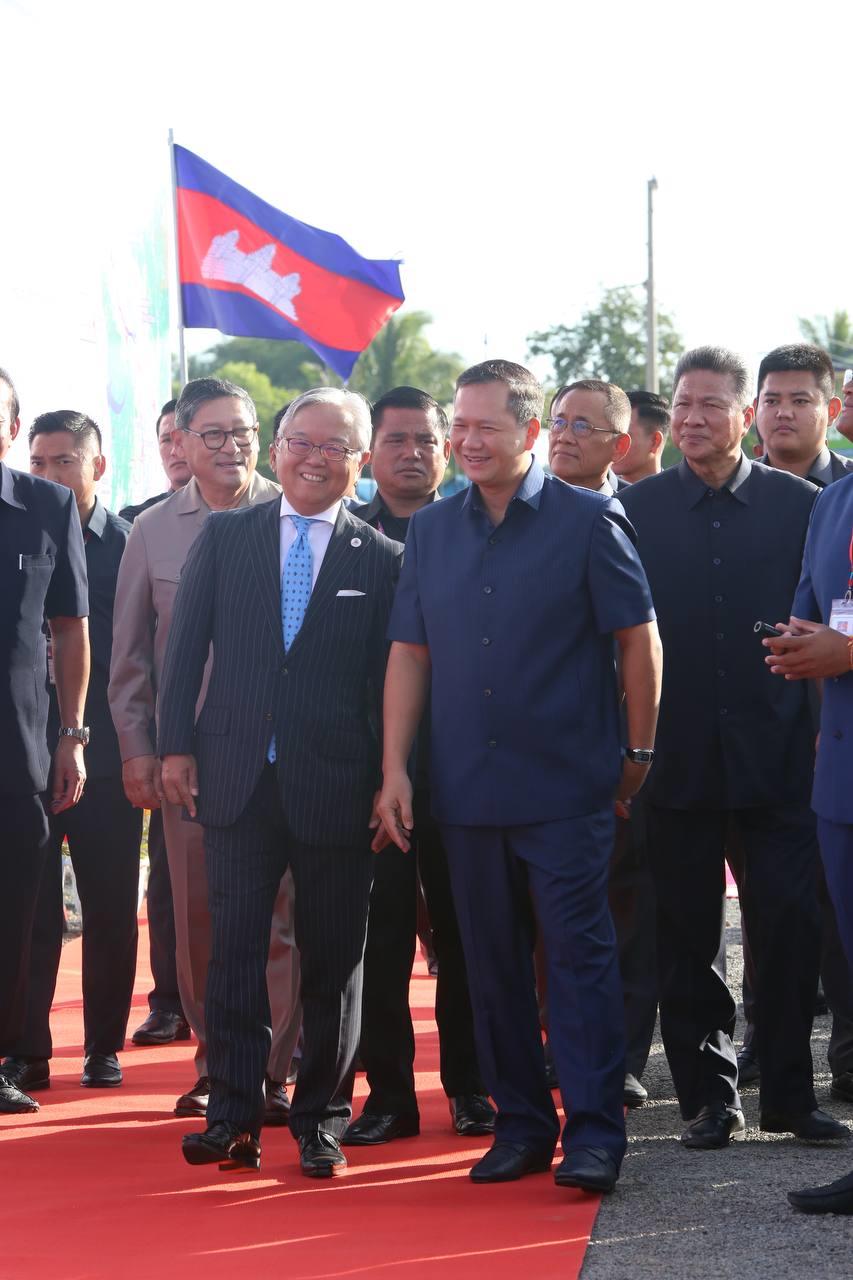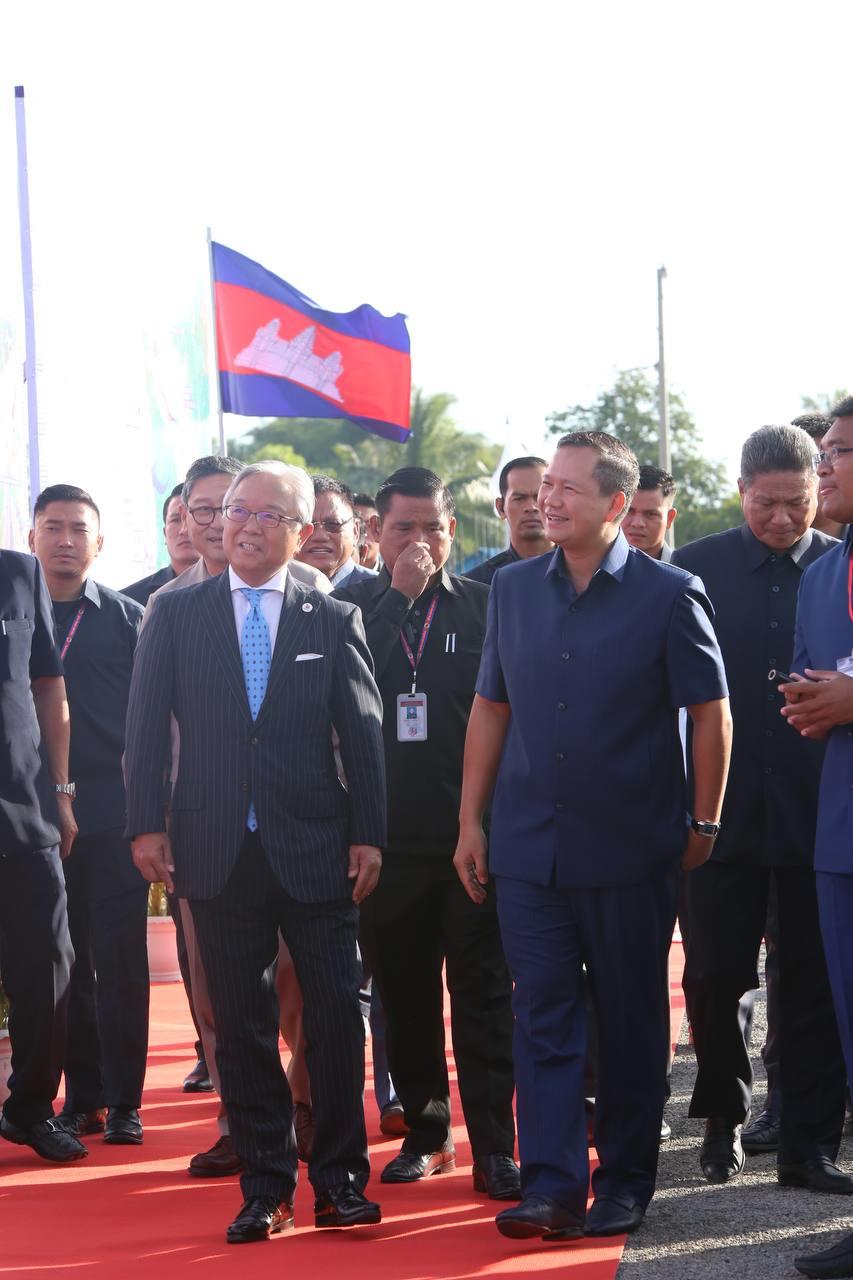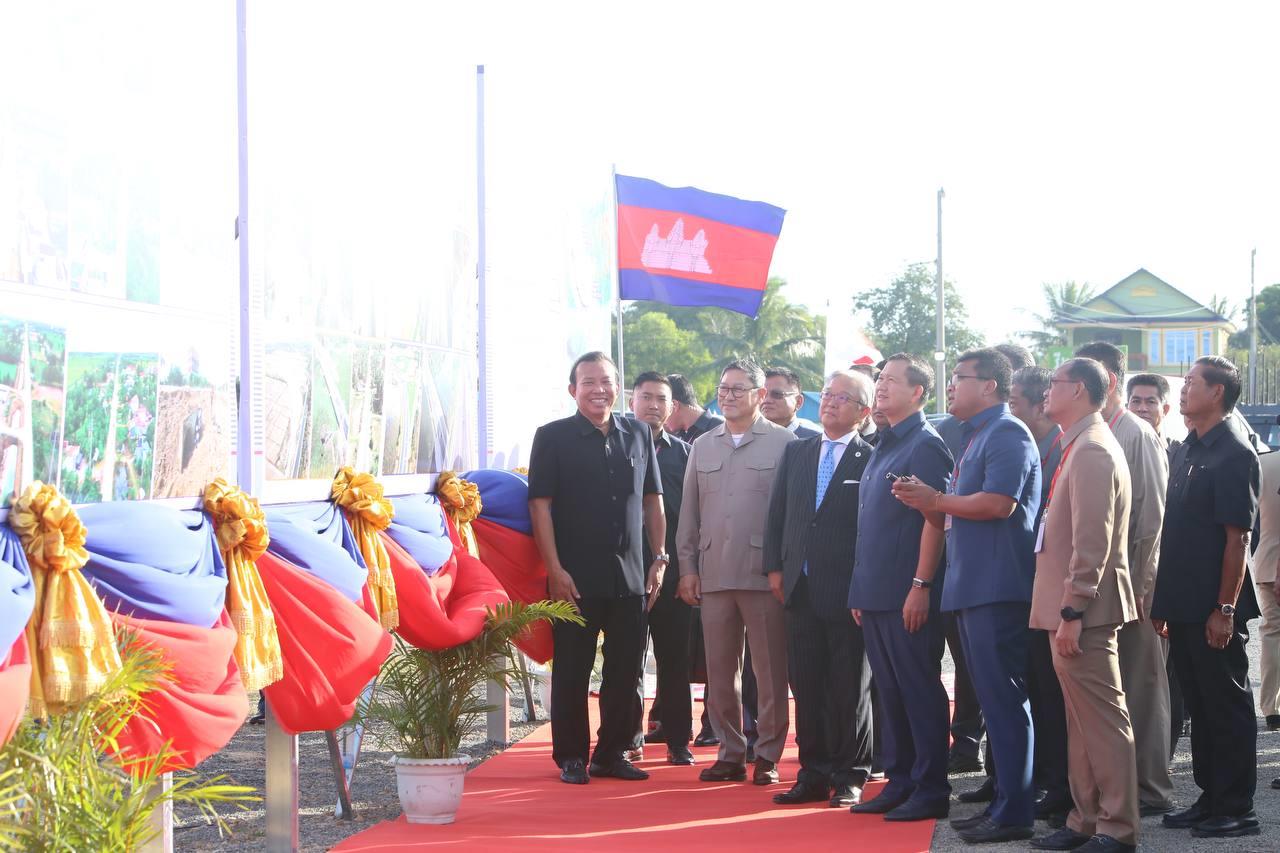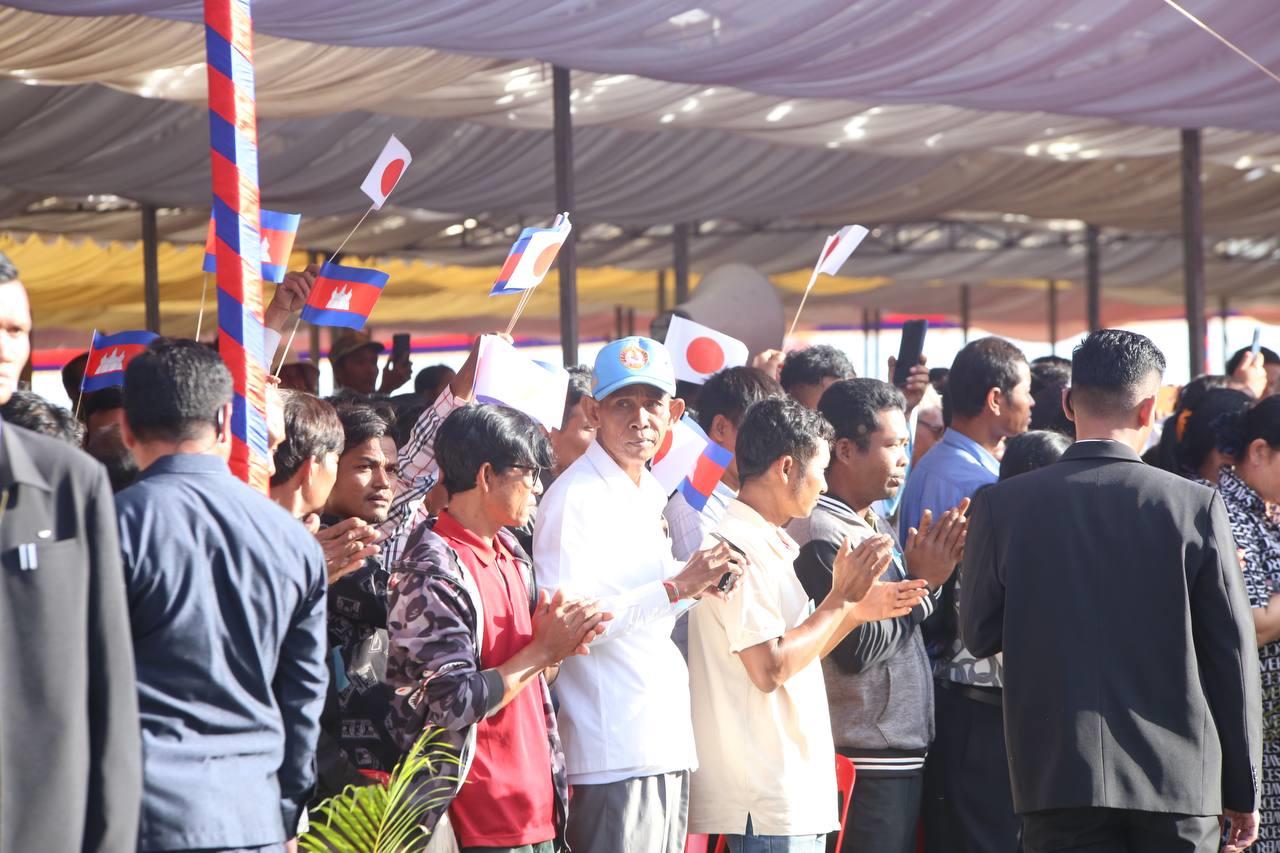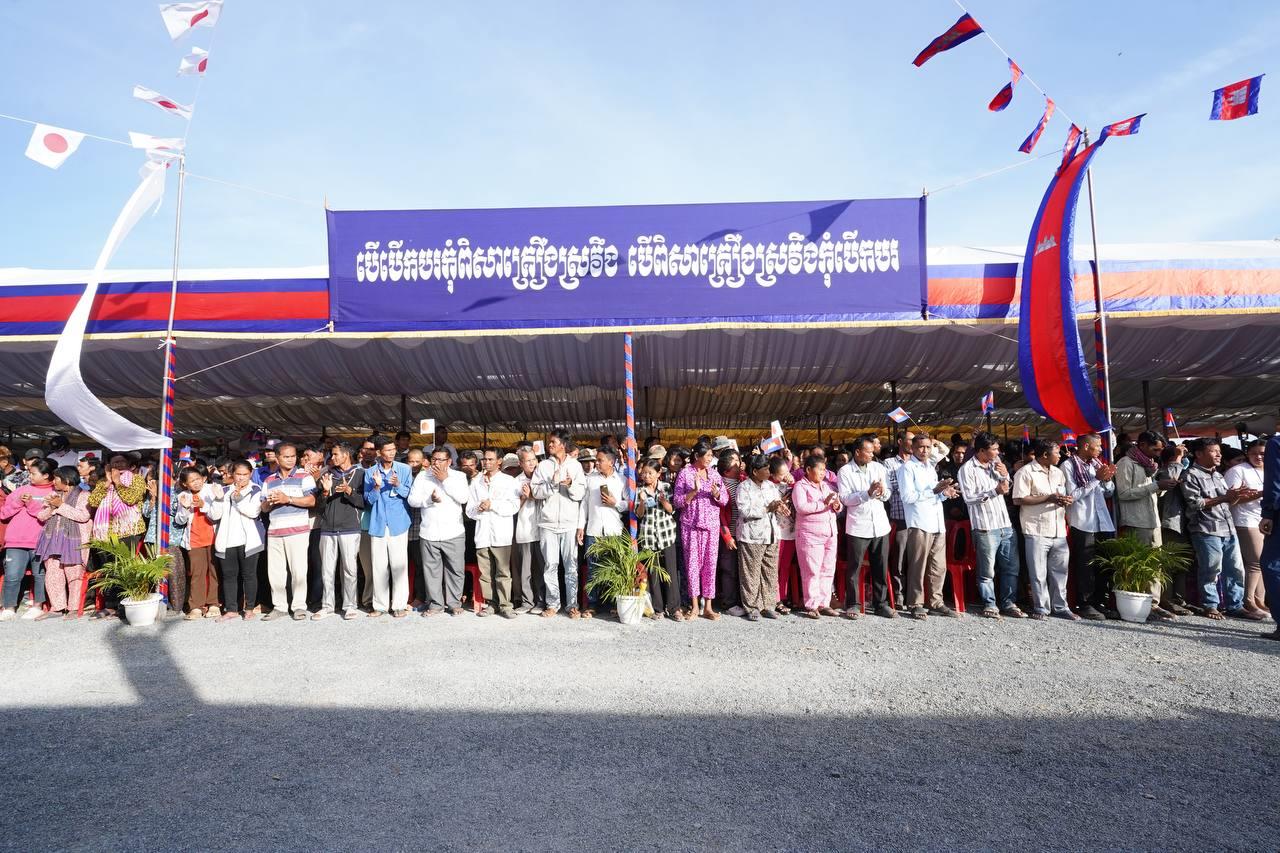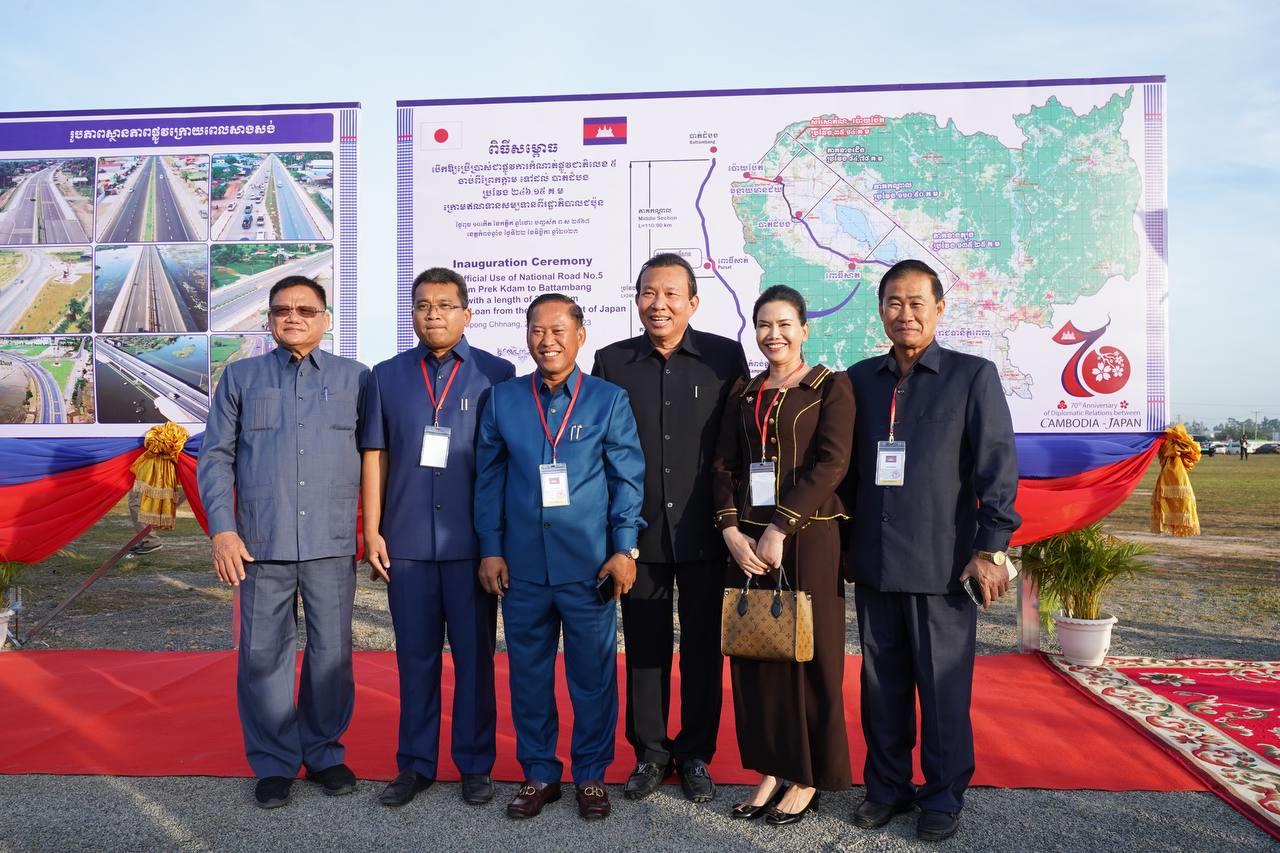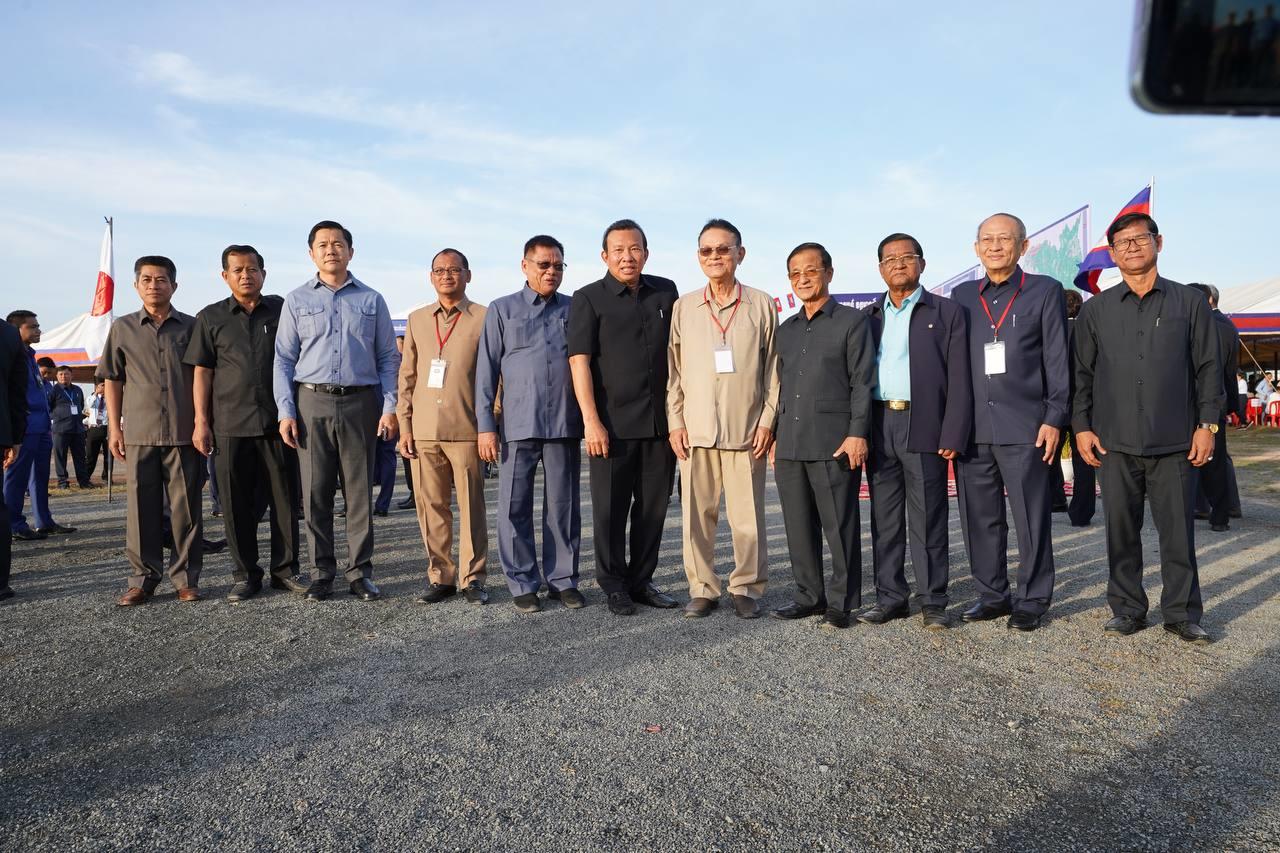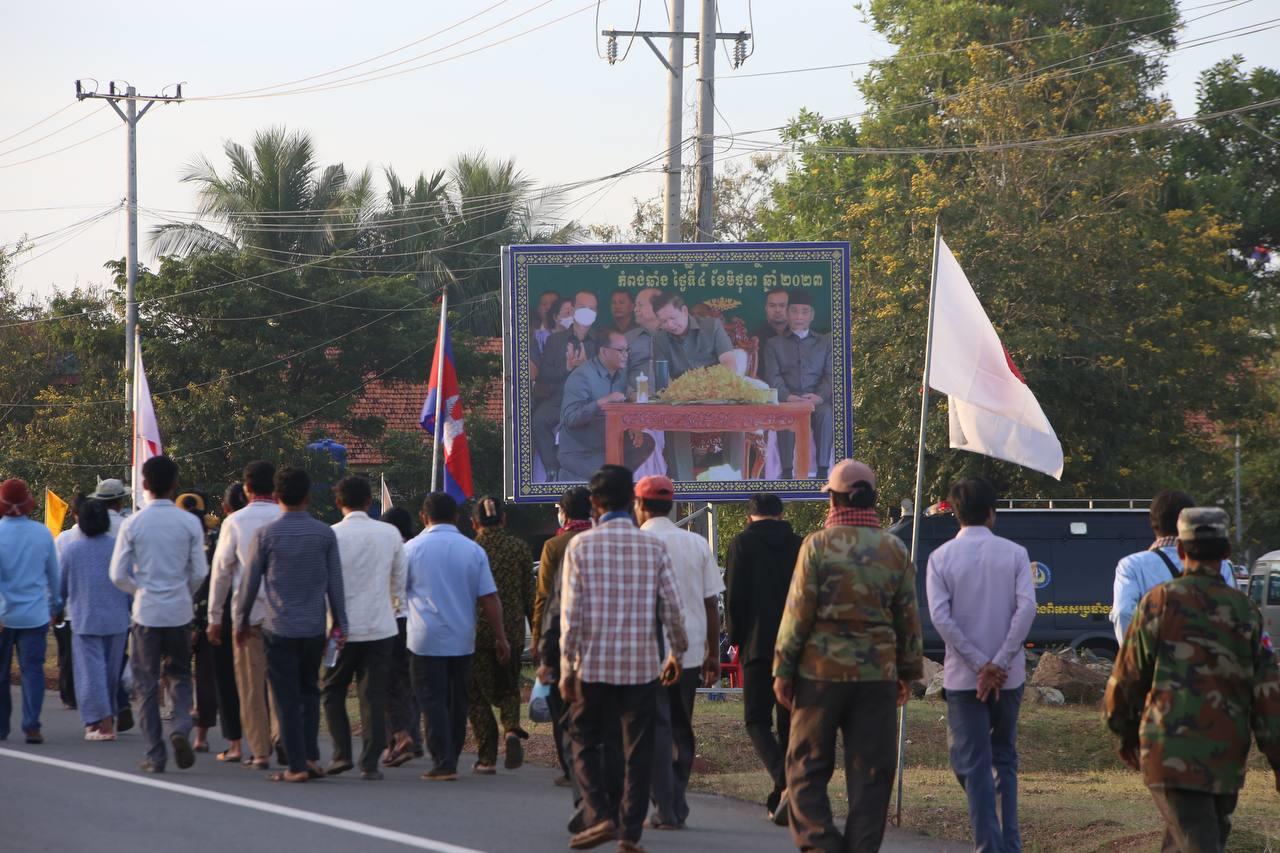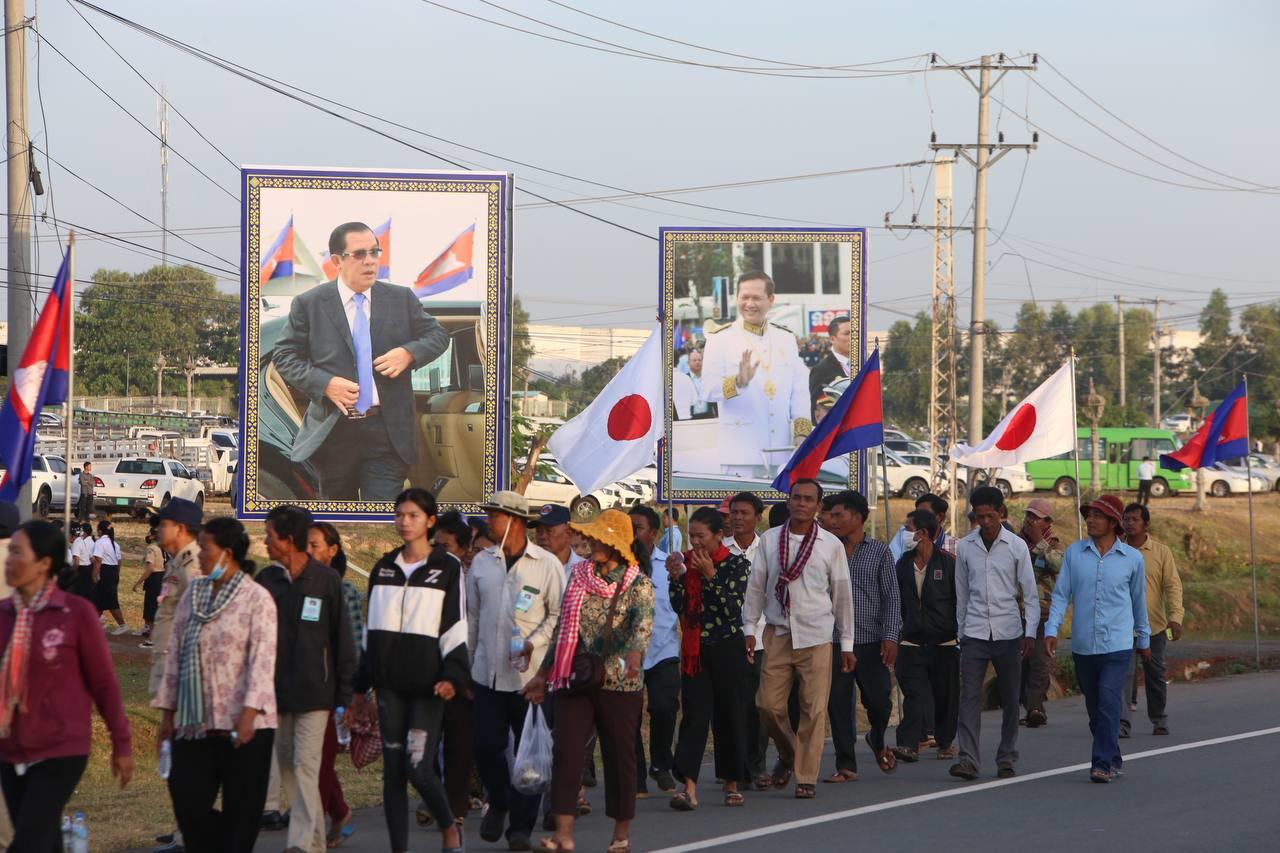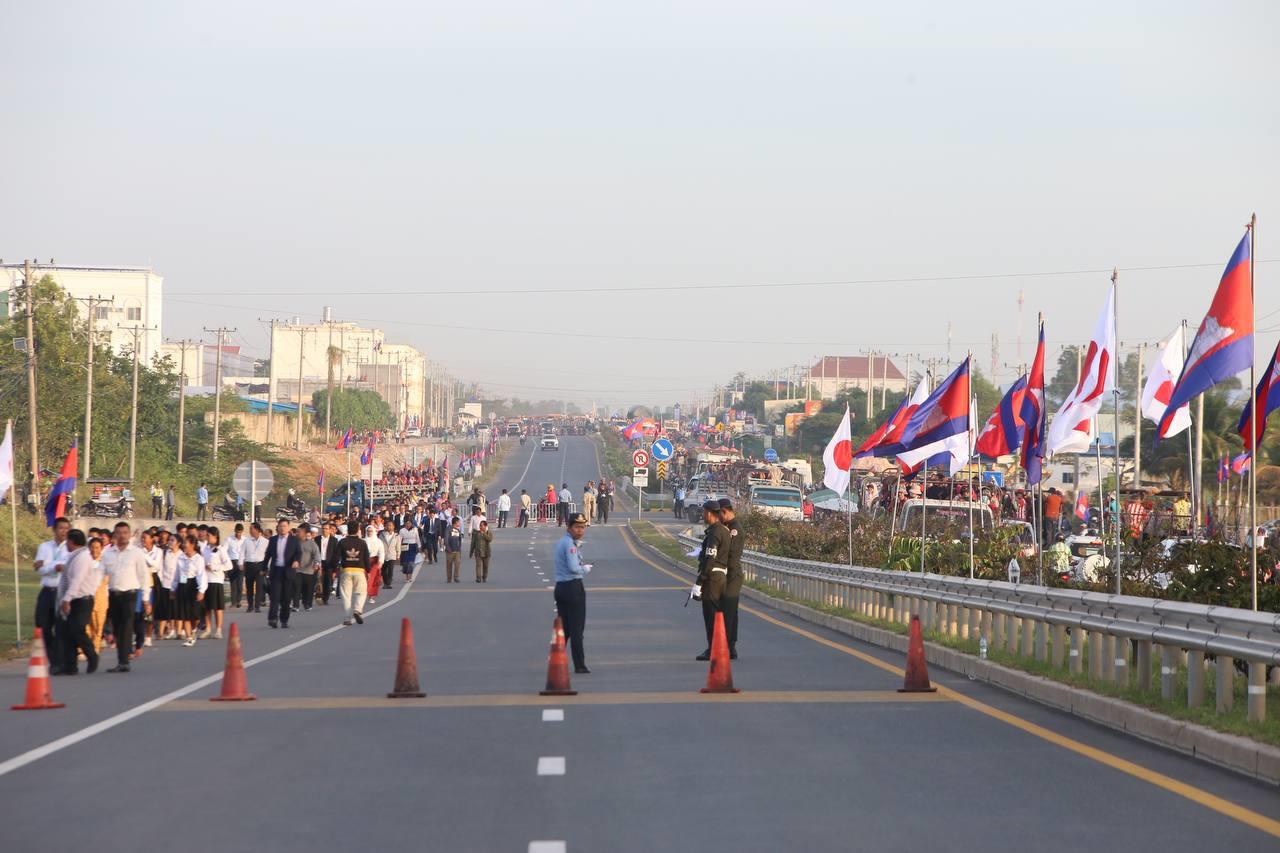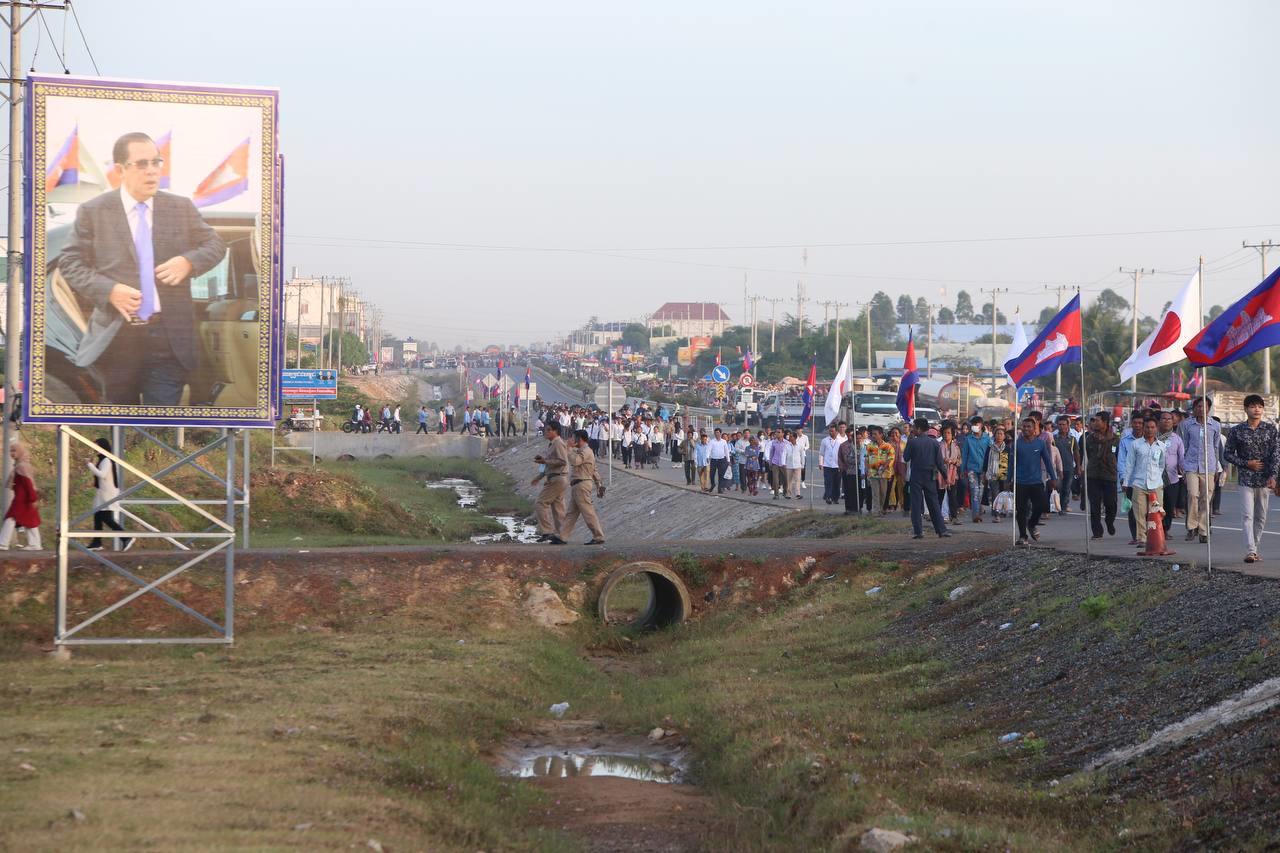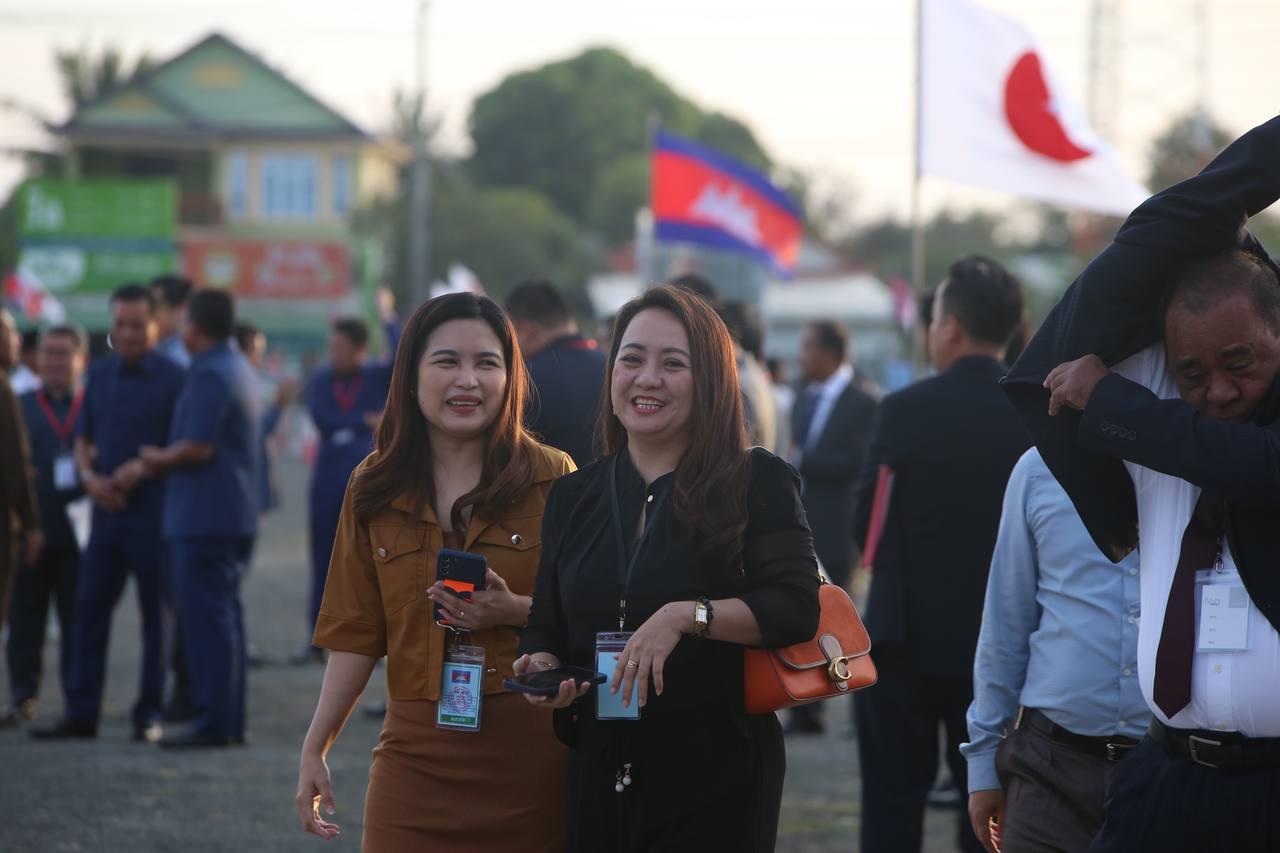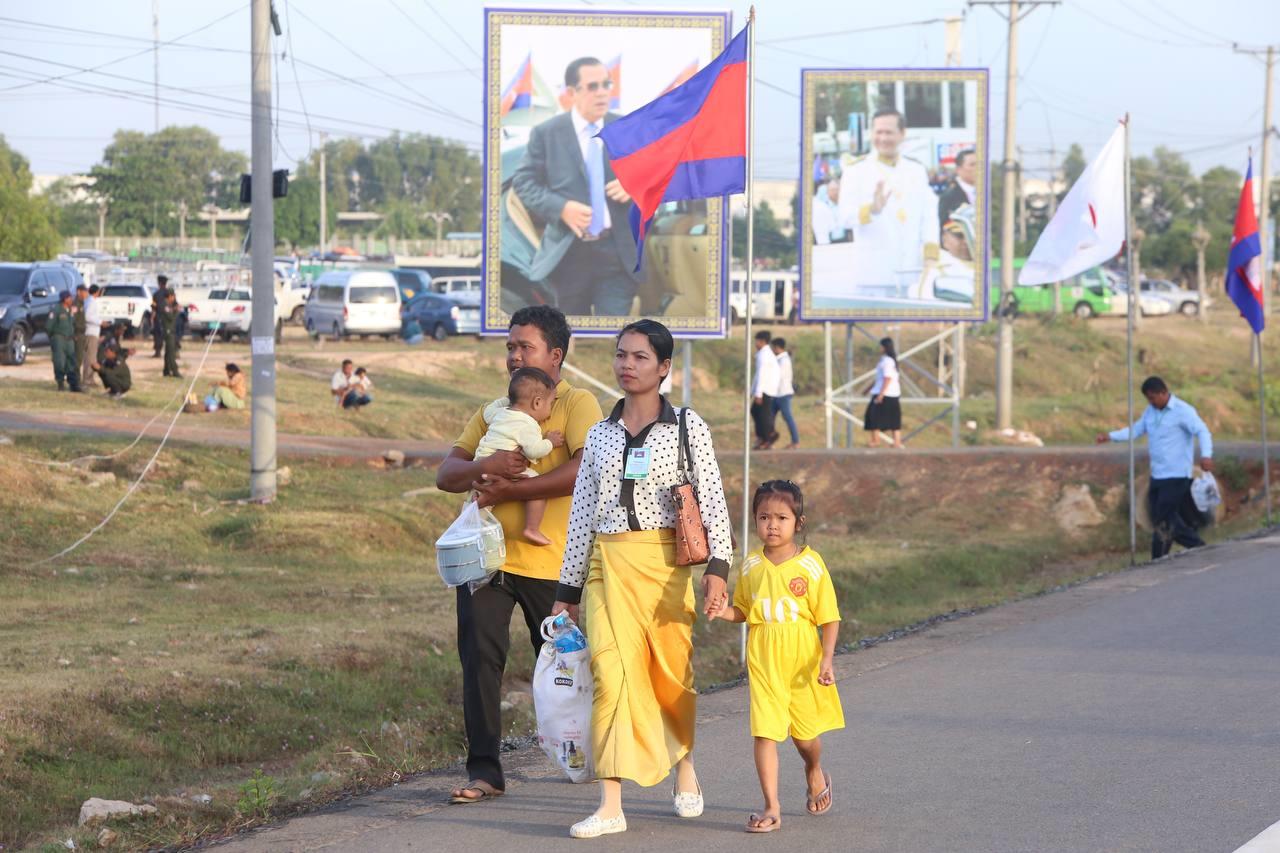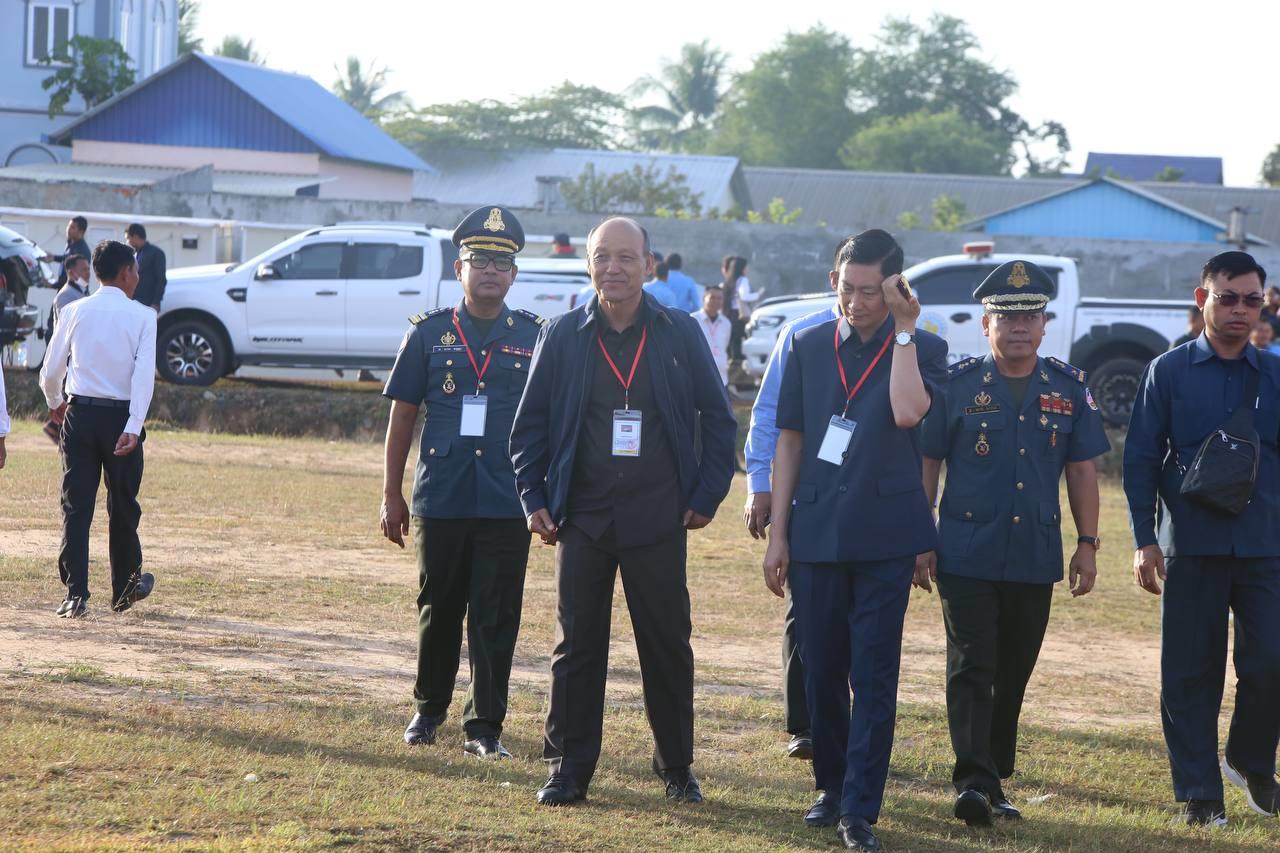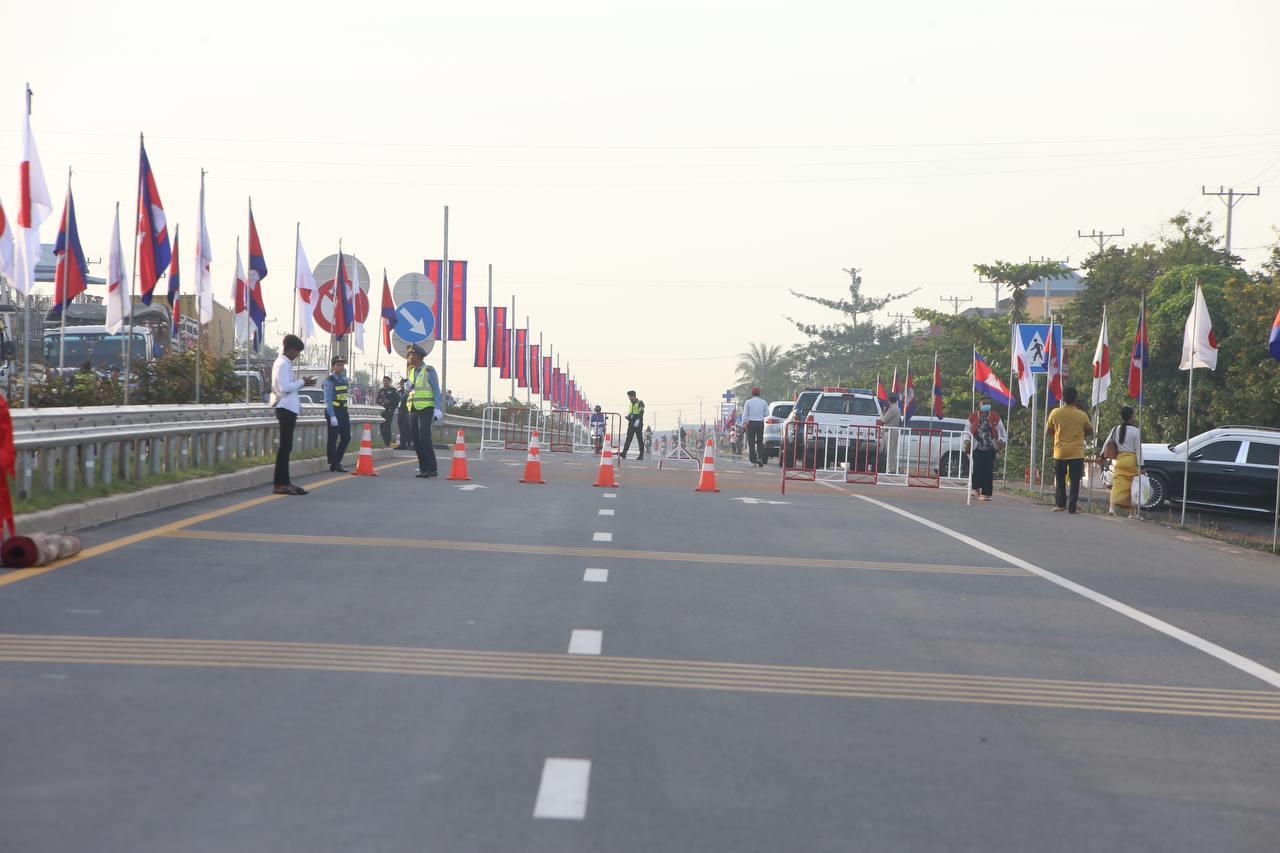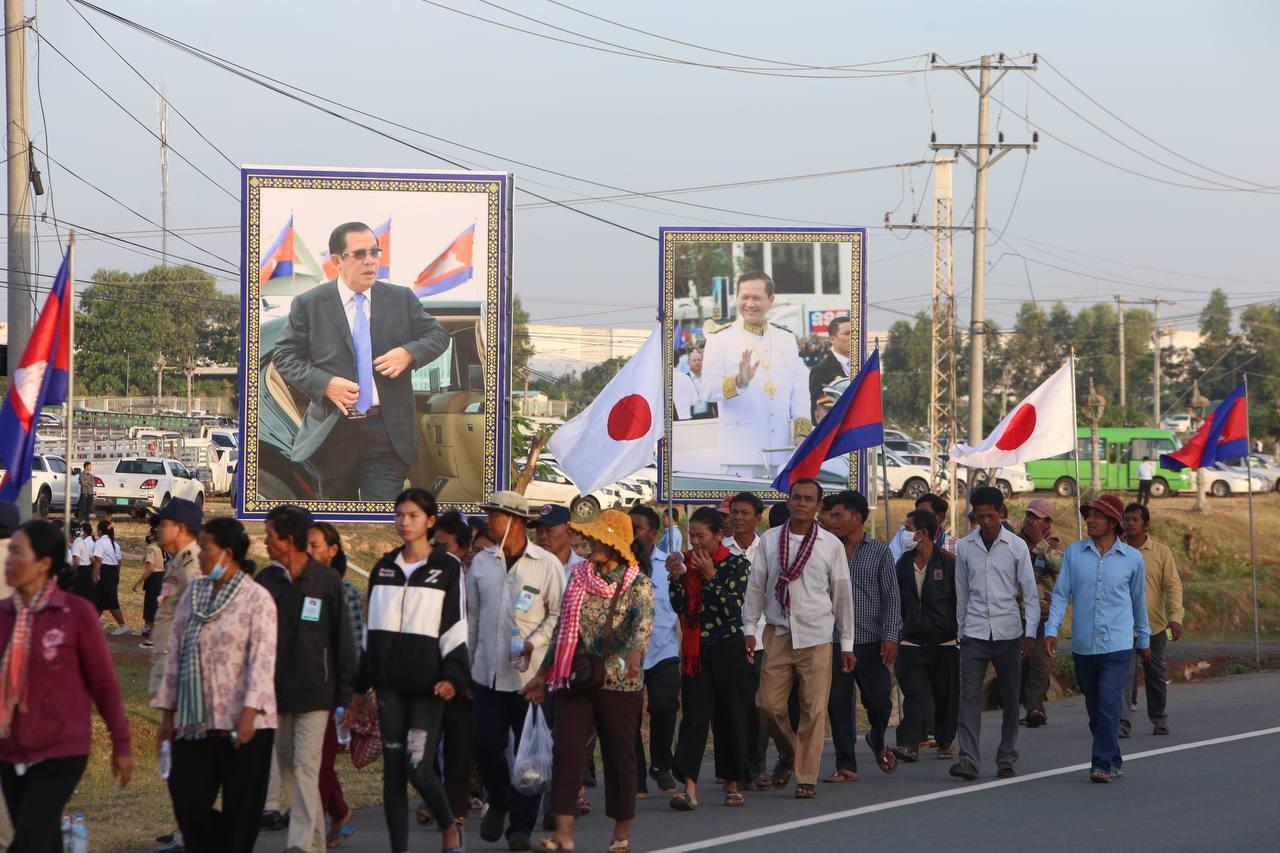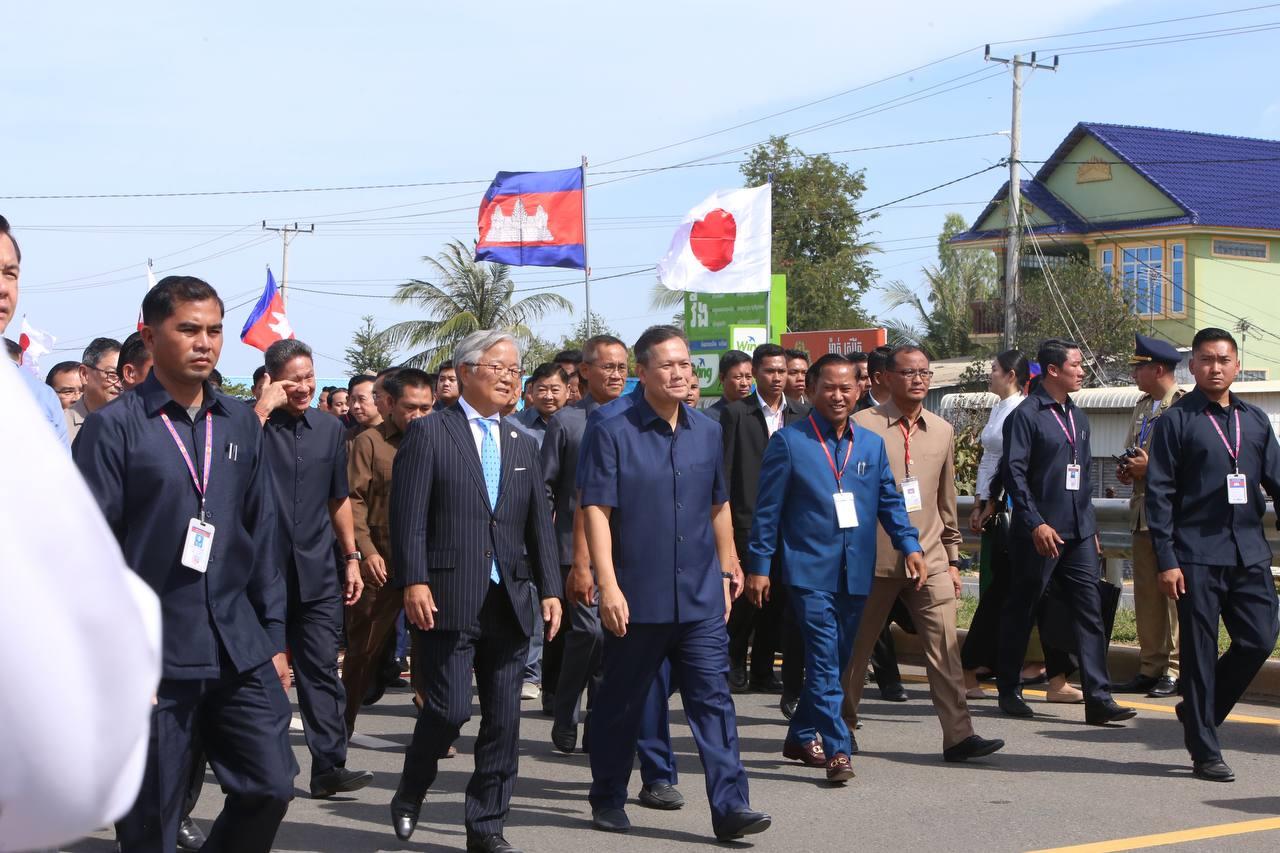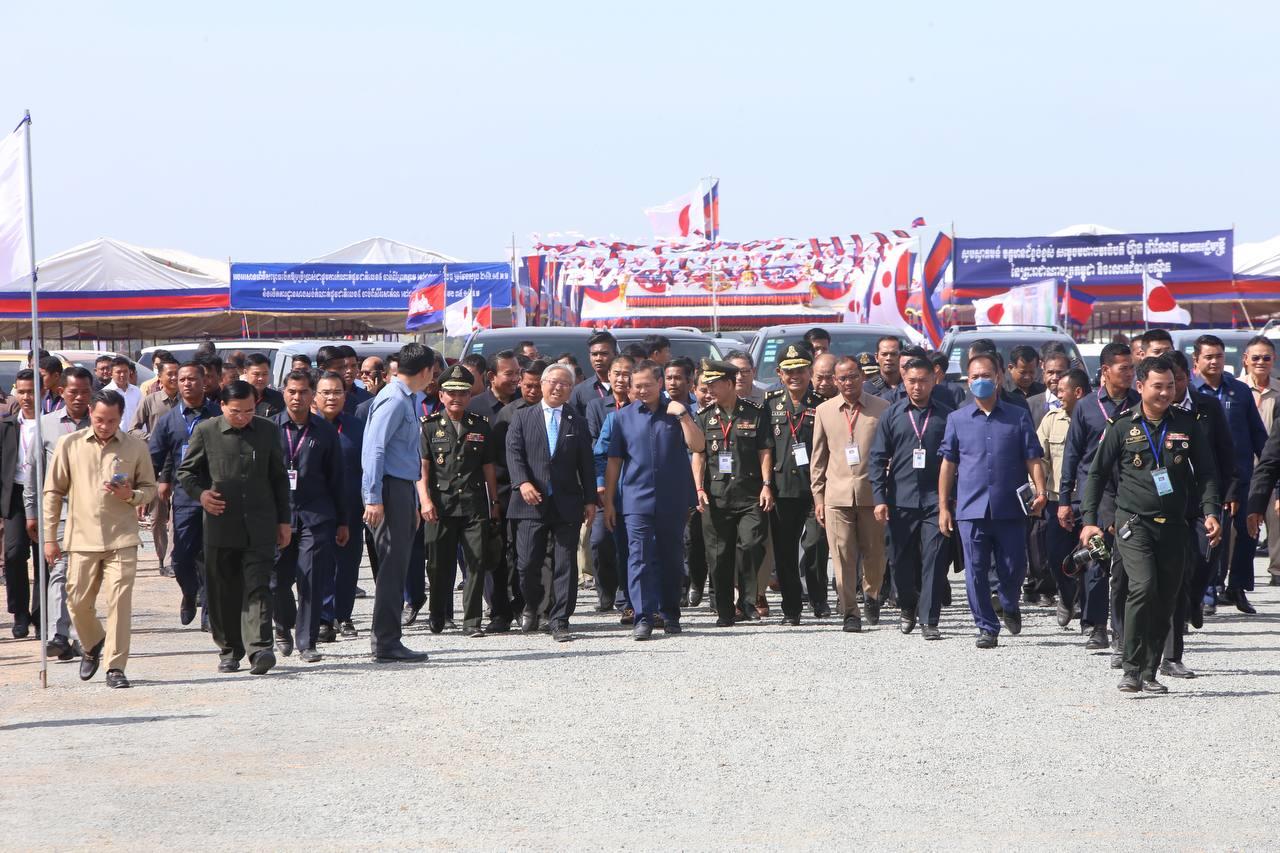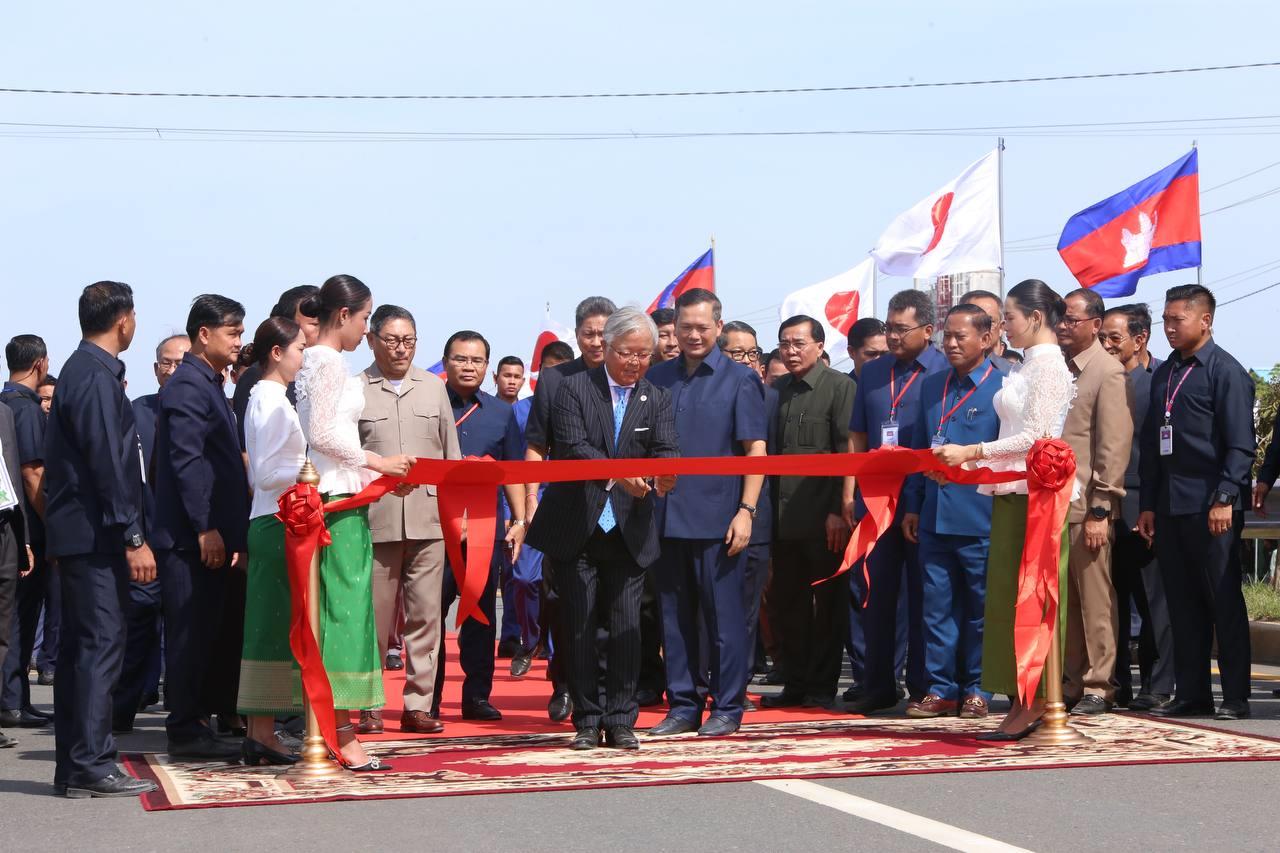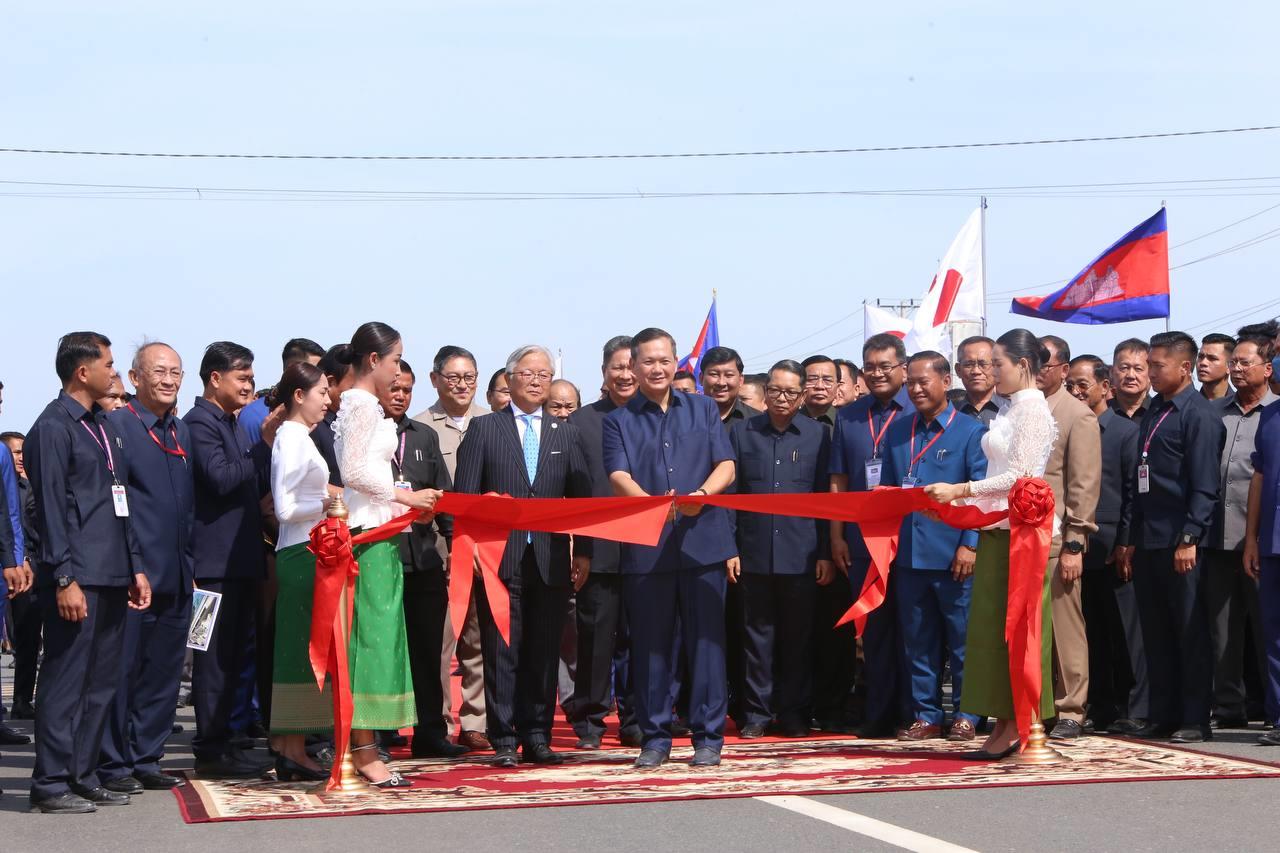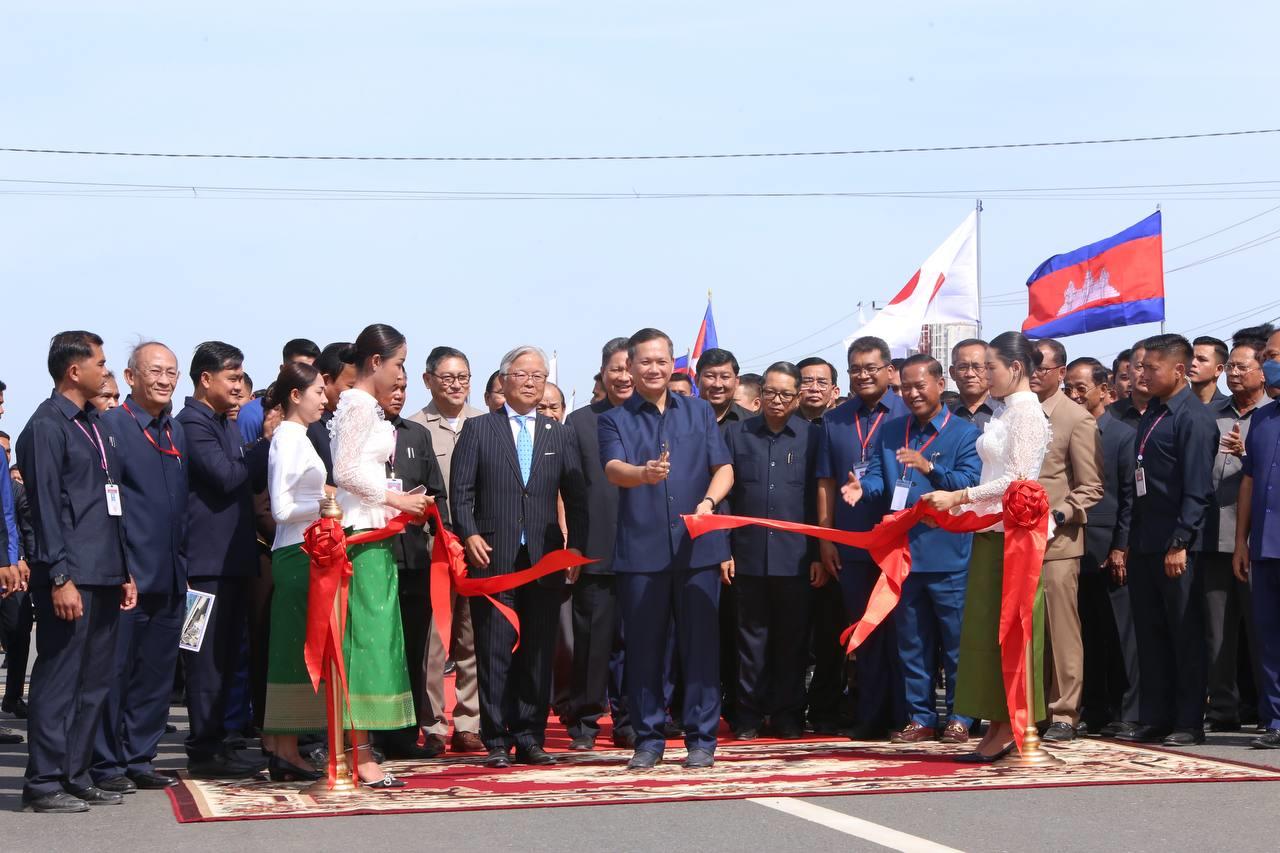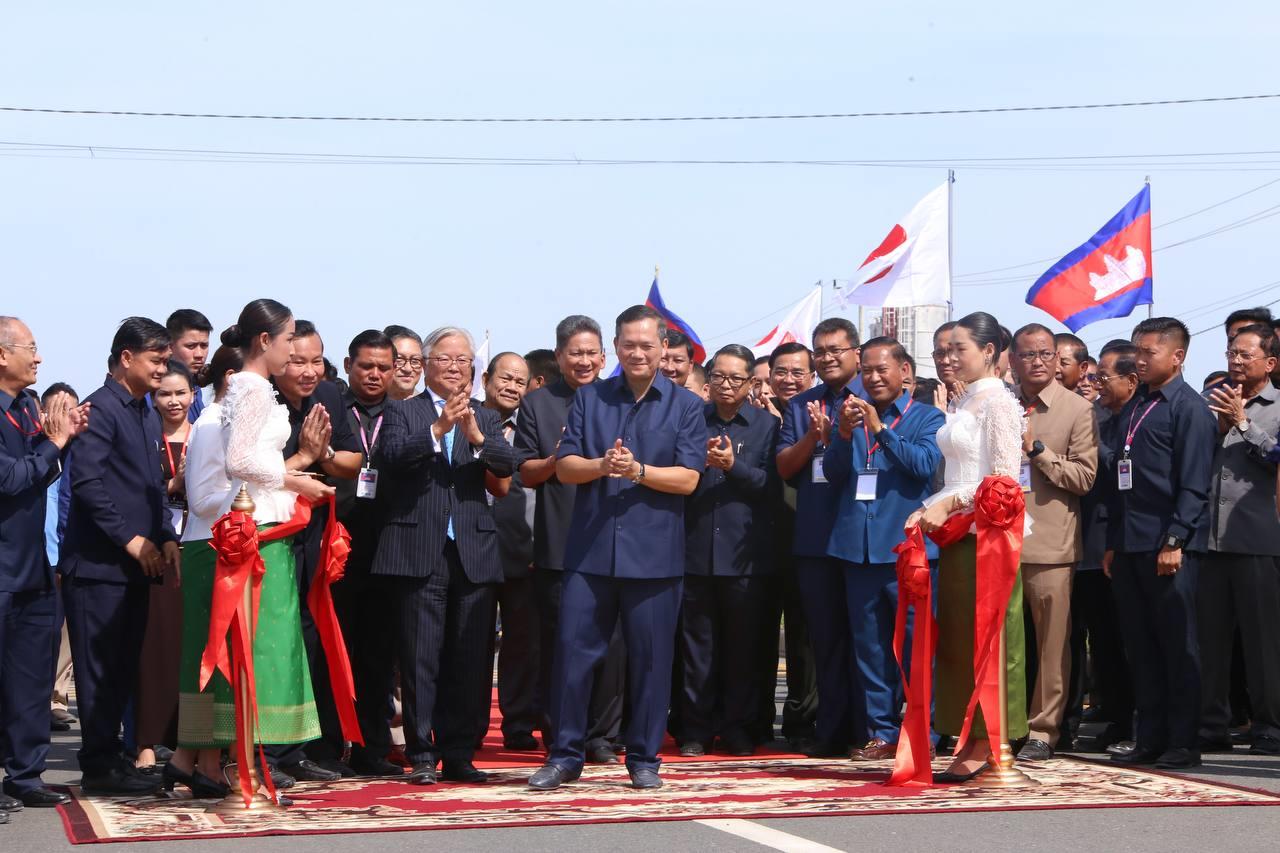Kampong Chhnang (FN), Nov. 22 –Samdech Thipadei underlined that the Royal Government has strategically utilized loans for infrastructure development to bolster the economy.
The premier spoke on Wednesday (Nov. 22) during an inauguration for the official use of National Road No. 5 from Prek Kdam to Battambang and groundbreaking for the construction from Serei Sophorn to Poipet.
"There have been numerous attacks on the new Royal Government, asserting that, in these 90 days, we are merely borrowing money without taking meaningful actions. The credit loan for road development is a common strategy for any country. Firstly, the government secures loans from various countries. Secondly, it borrows funds from citizens through bonds or other forms of lending. It is crucial that such investments are undertaken responsibly, ensuring the capacity for repayment," the premier underscored.
"Loans from Japan, China, the World Bank, or other countries are crucial for rapid problem-solving and economic enhancement. Importantly, public debt management has its limitations and follows specific rules," the premier continued.
On this occasion, Samdech Thipadei highlighted that the Royal Government has employed loans for infrastructure development aligned with economic objectives.
According to the National Budget Law, the Public Debt Management of the Royal Government adheres to five main principles:
1. Borrow loans within a reasonable amount that the financial and economic situation can withstand.
2. Borrow only loans with high concessions or favorable terms.
3. Borrow only for priority sectors to sustain economic growth and enhance productivity, economy, or production efficiency.
4. Utilize credit with transparency, accountability, efficiency, and maximum effectiveness.
5. Use credit for financial investment projects in public infrastructure that meet high standards and quality, aligning with the principles of public investment management. This also addresses the demands of national development in the new phase, ensuring sustainable socioeconomic, environmental, and climate change resilience.
=FRESH NEWS
